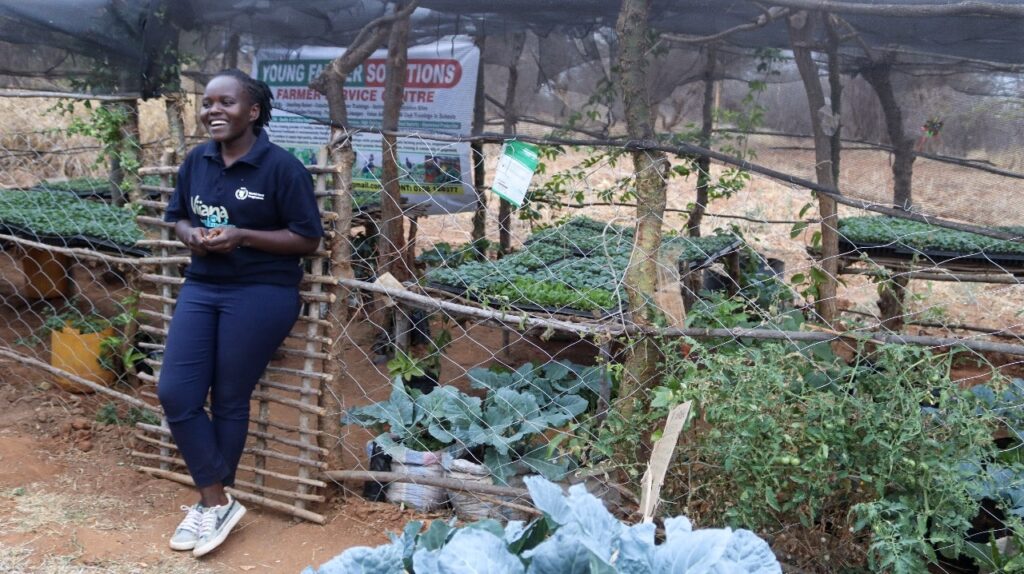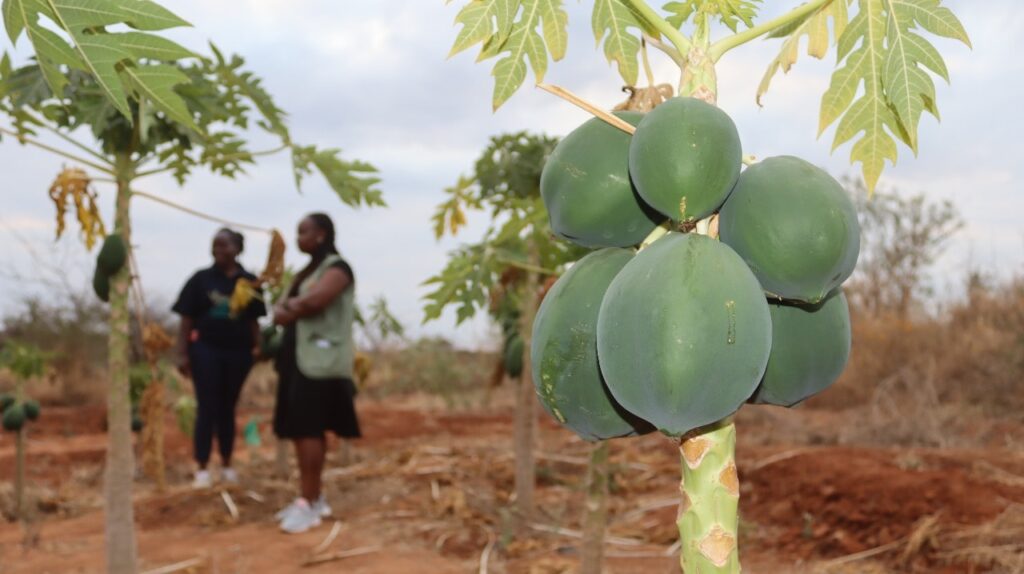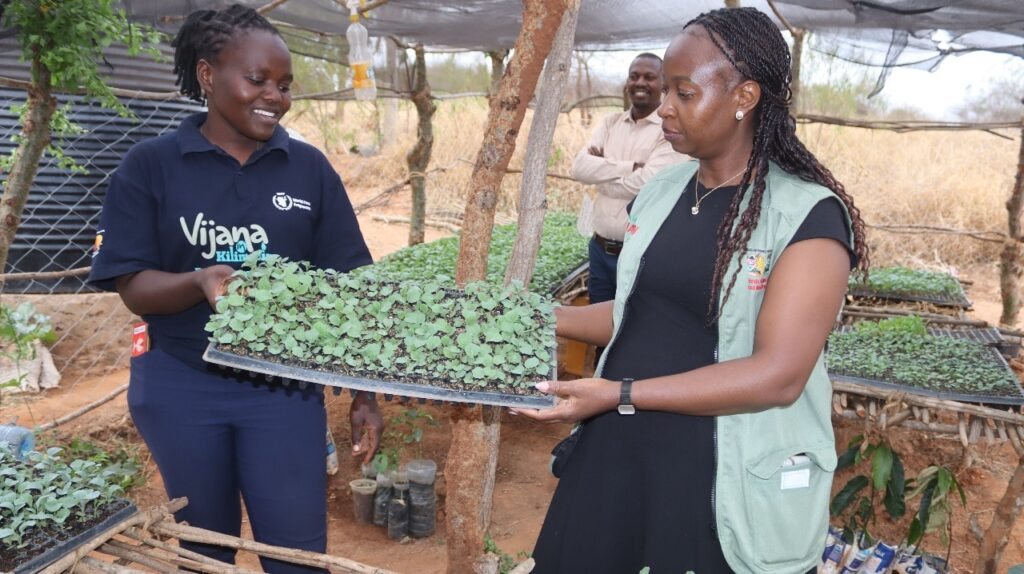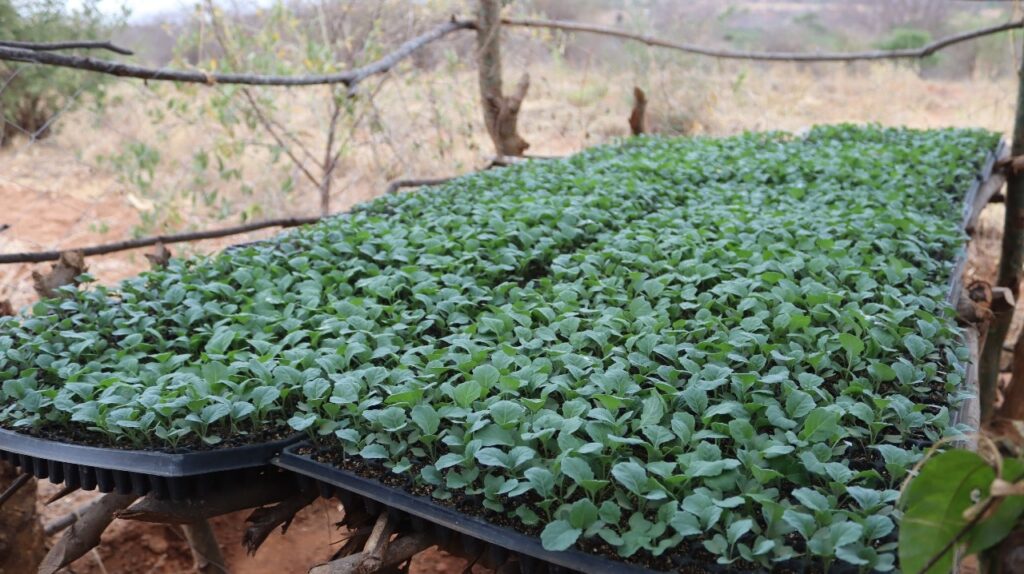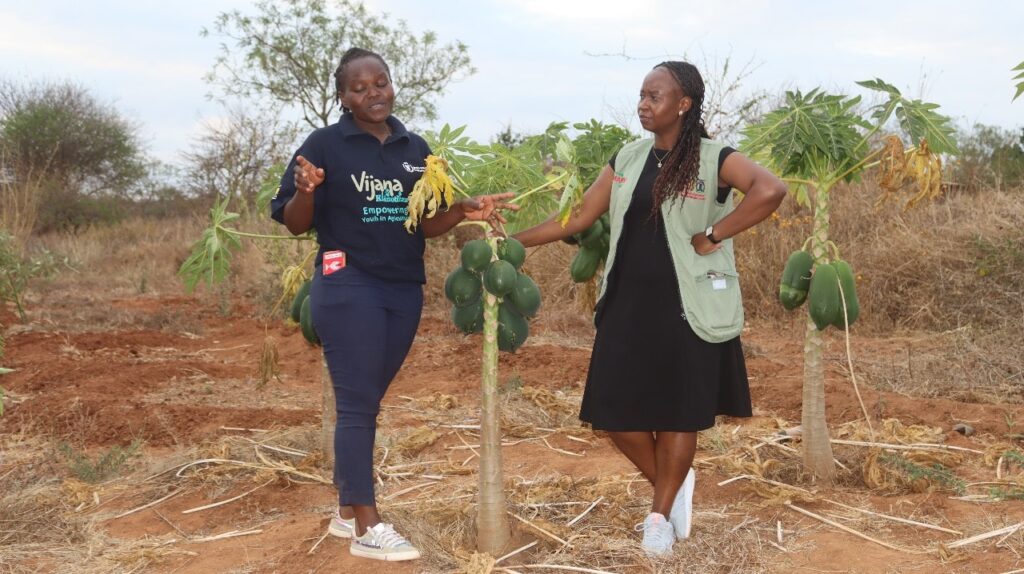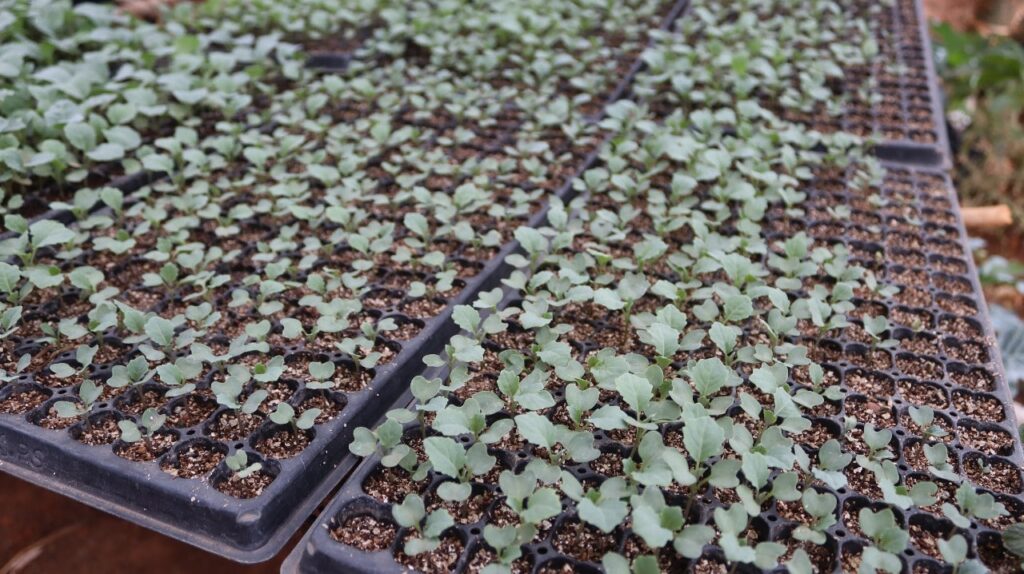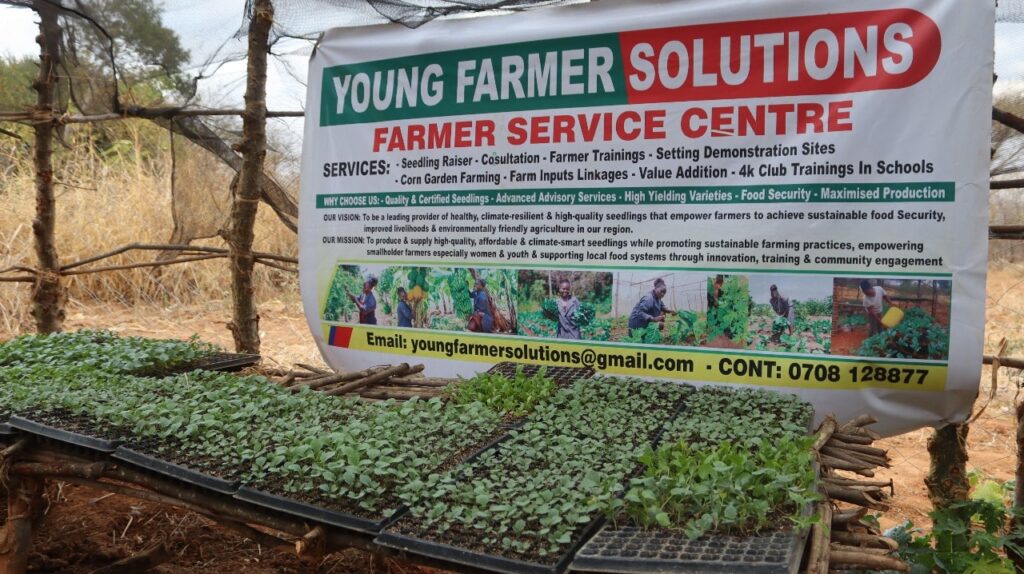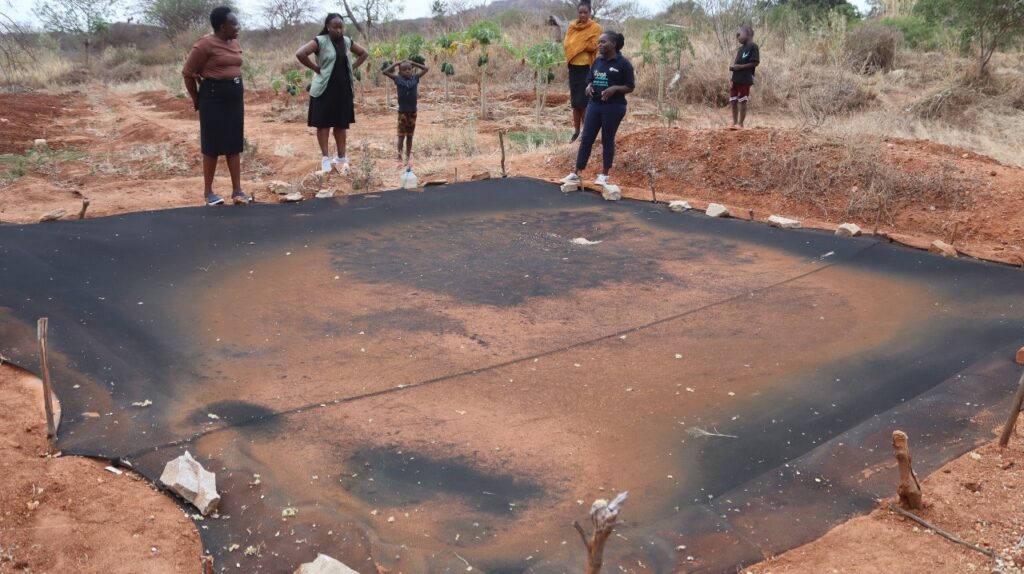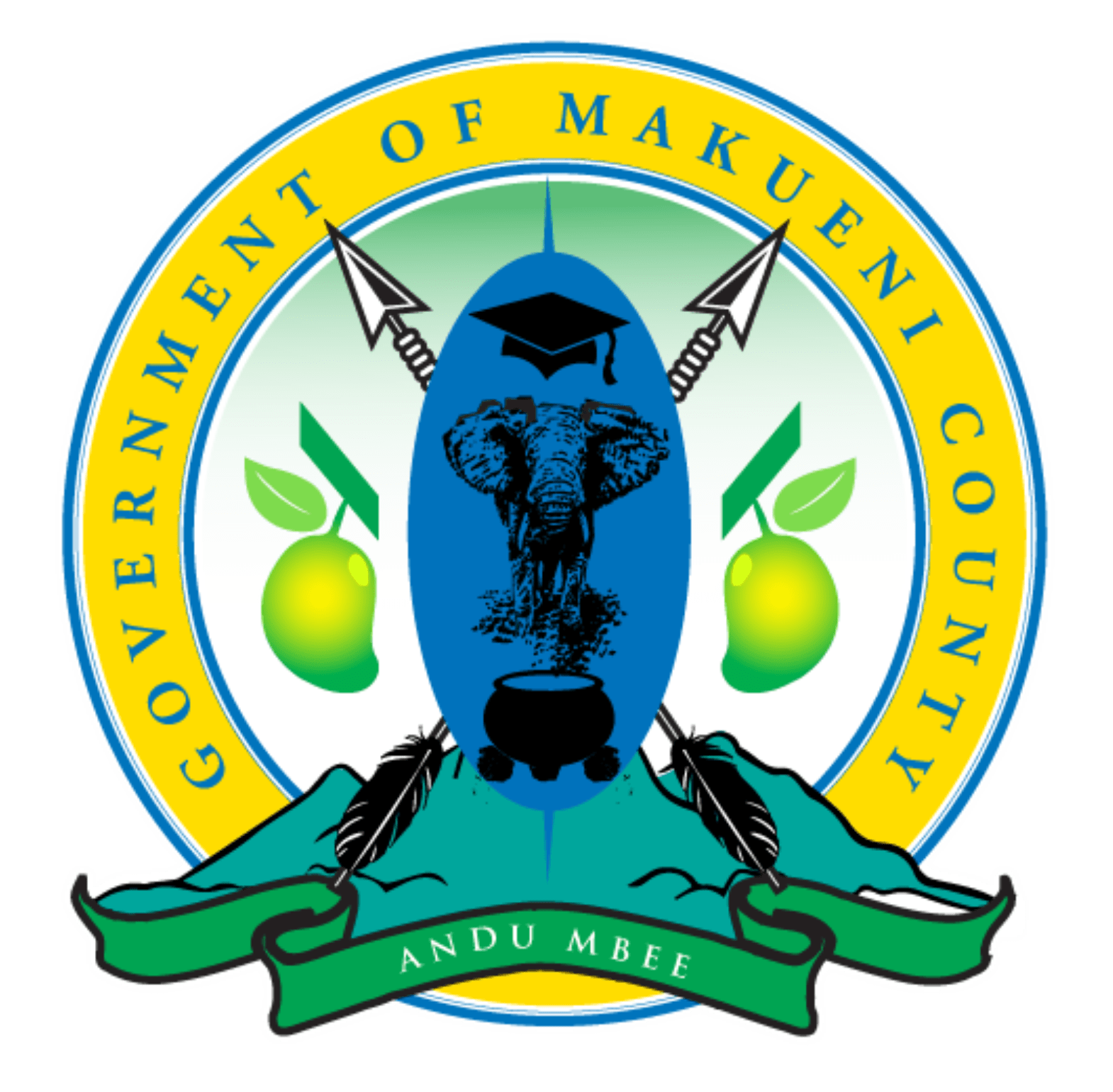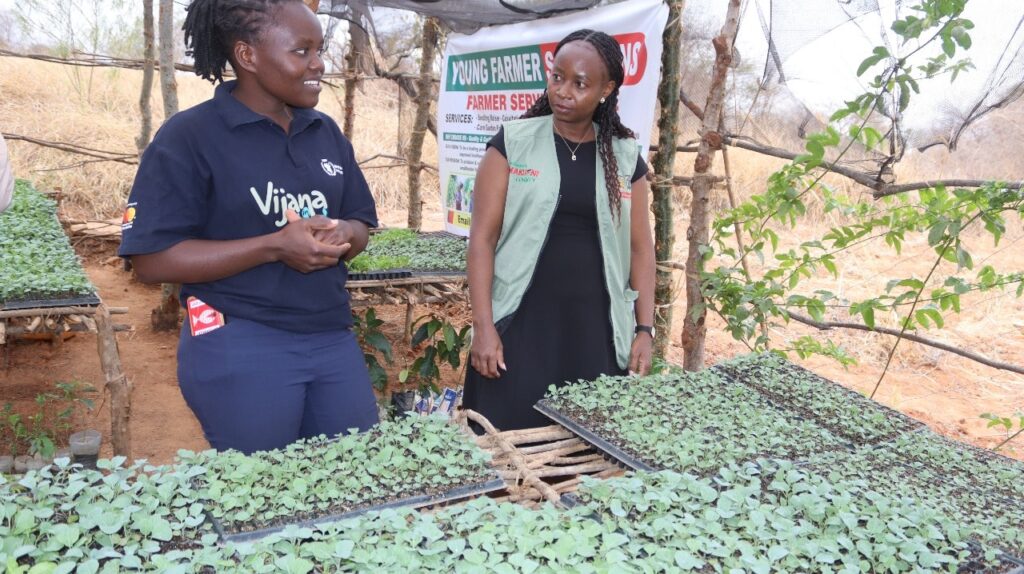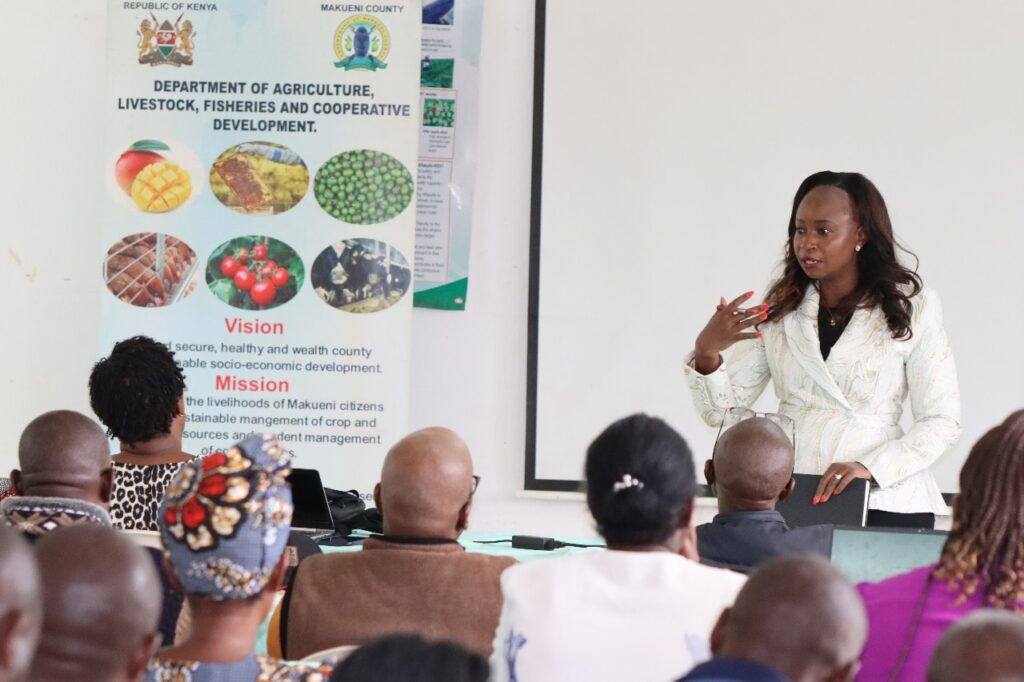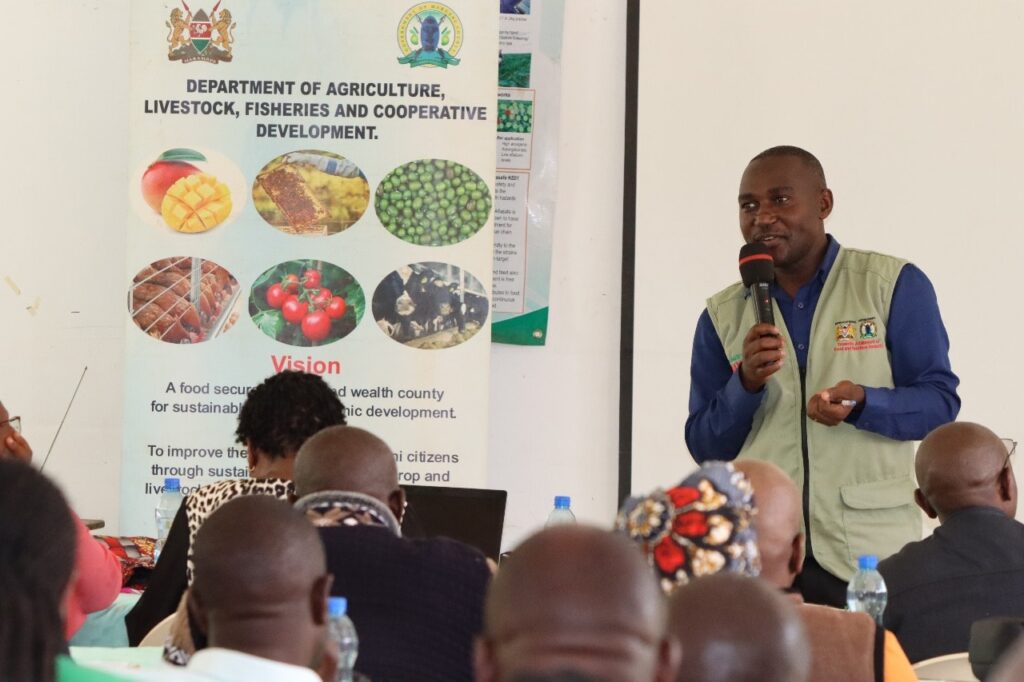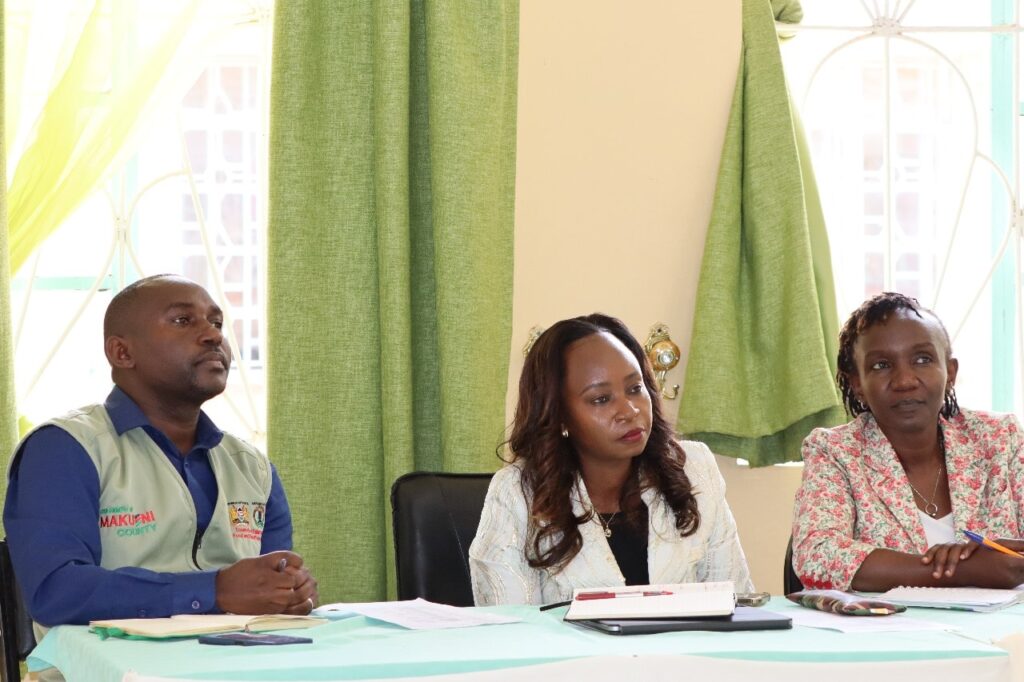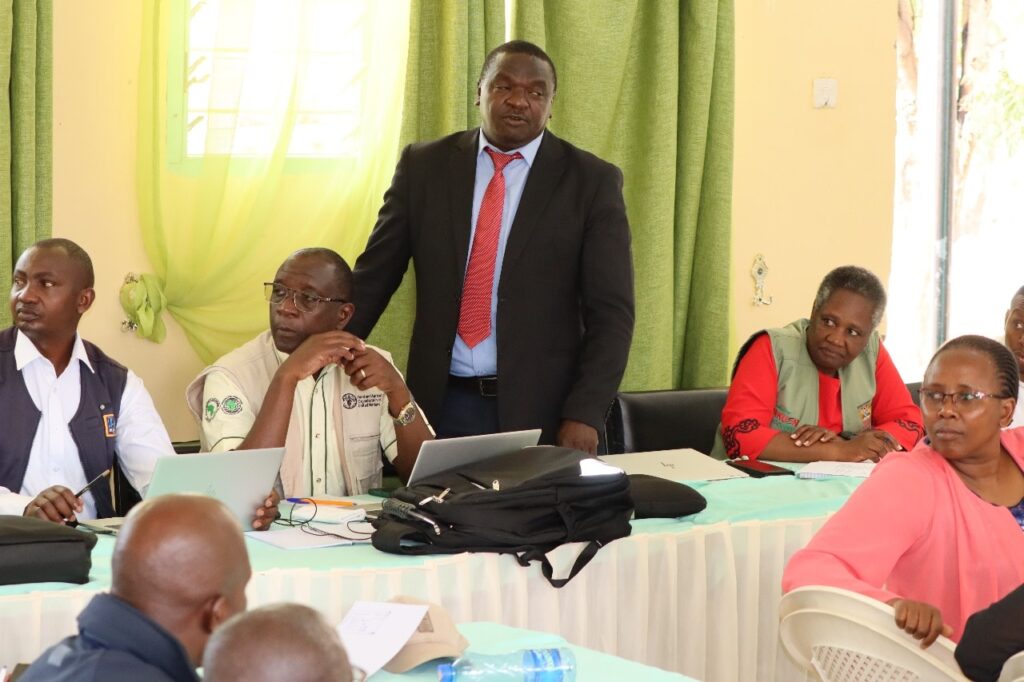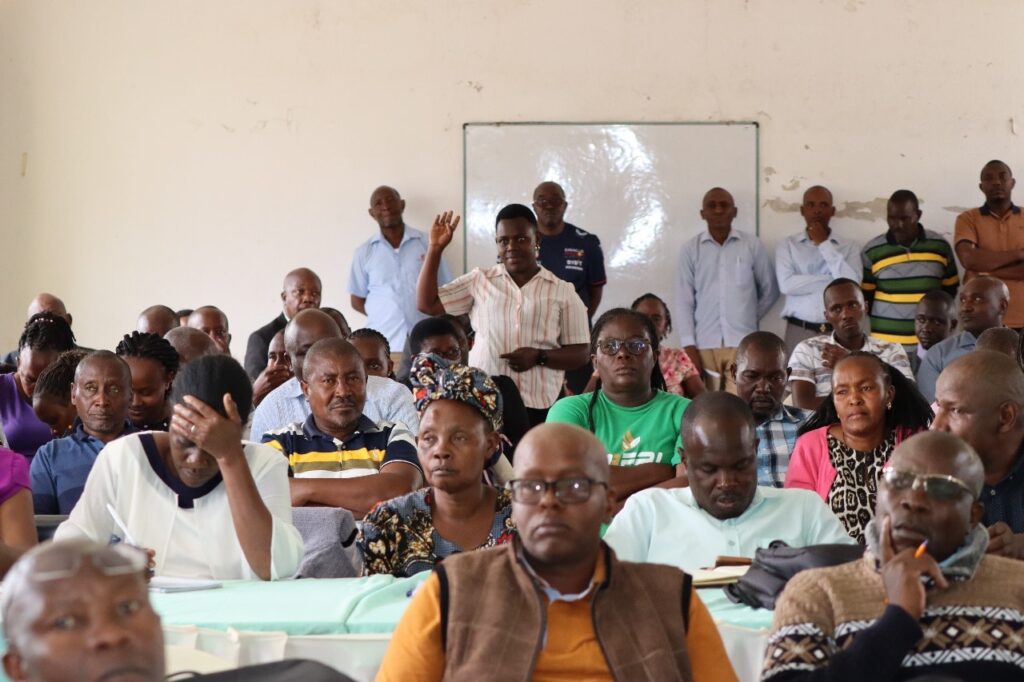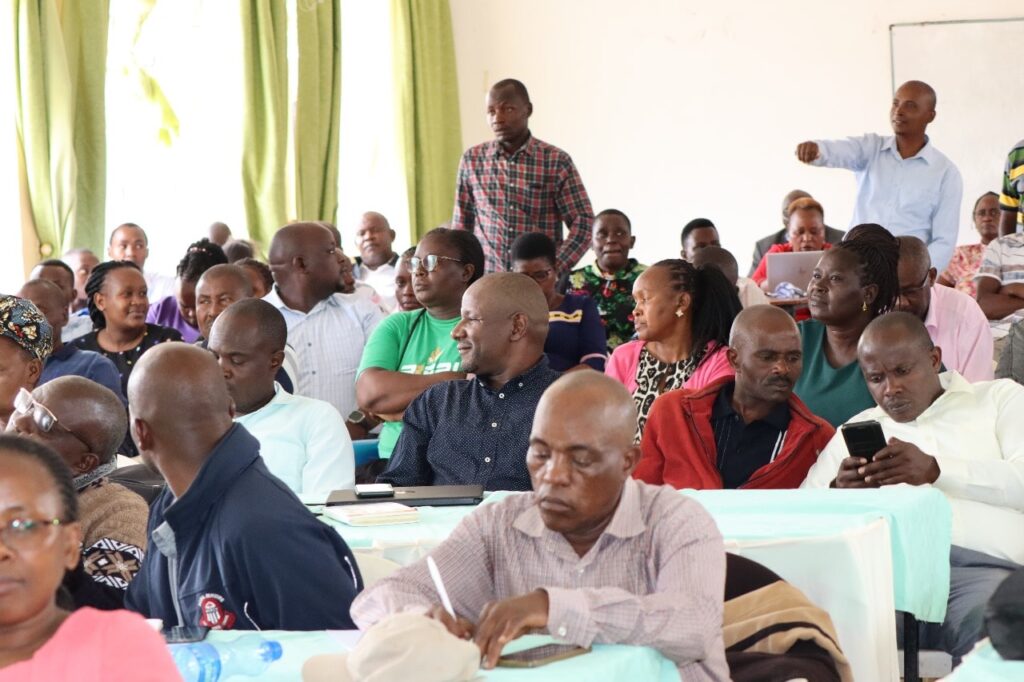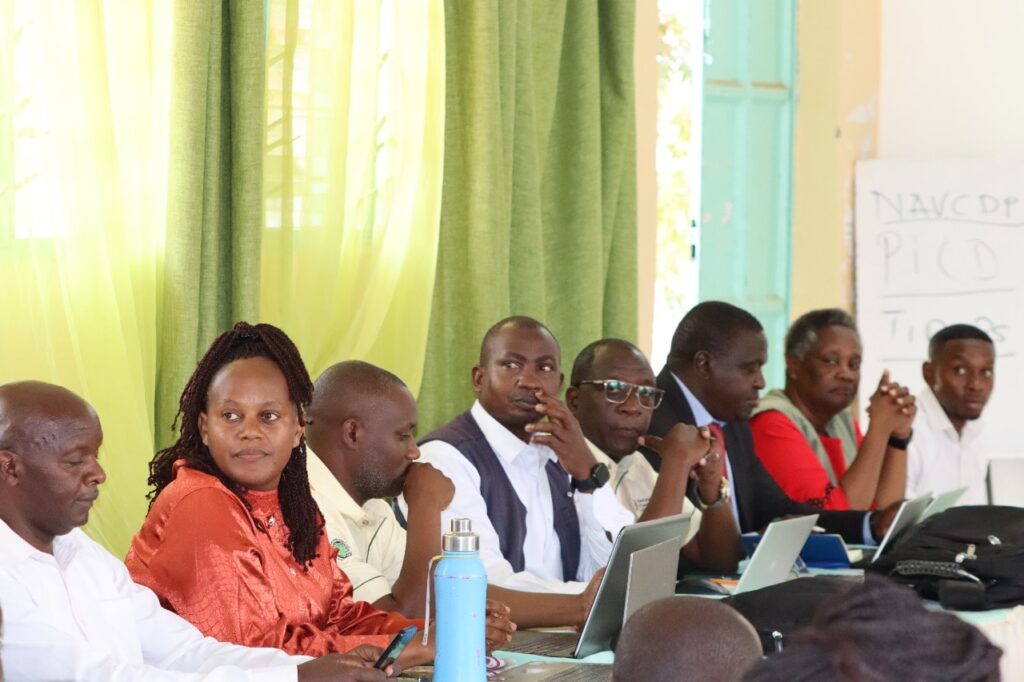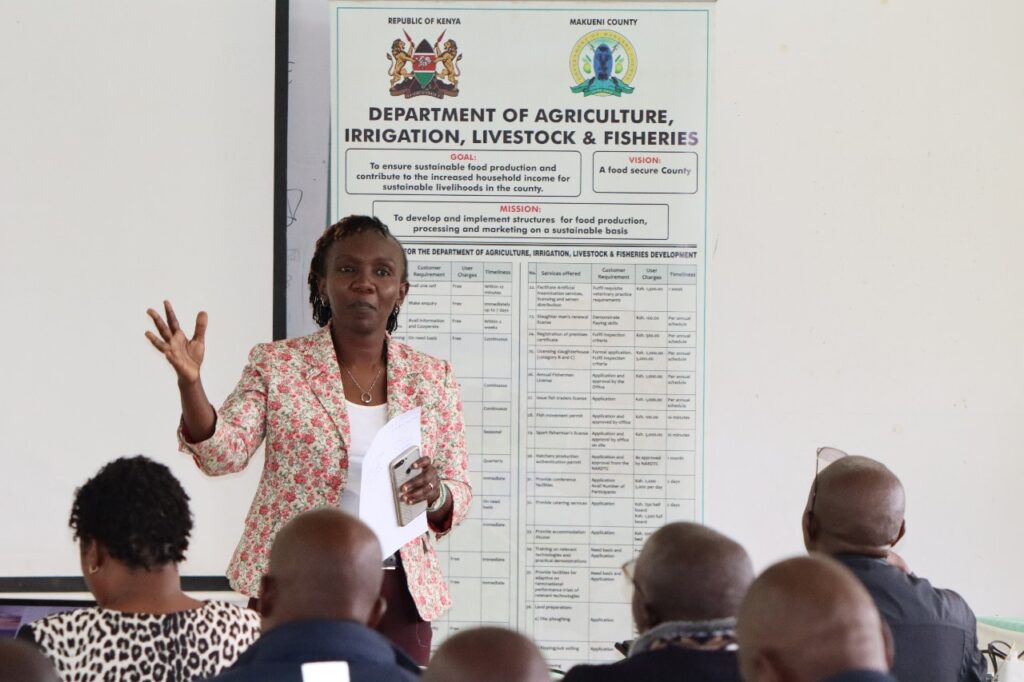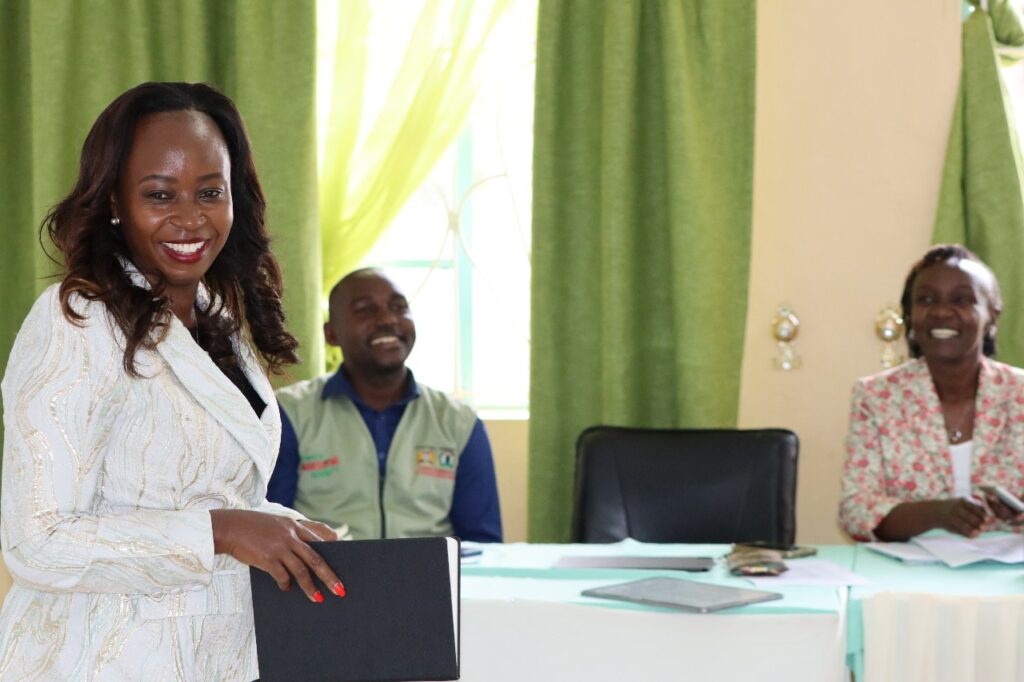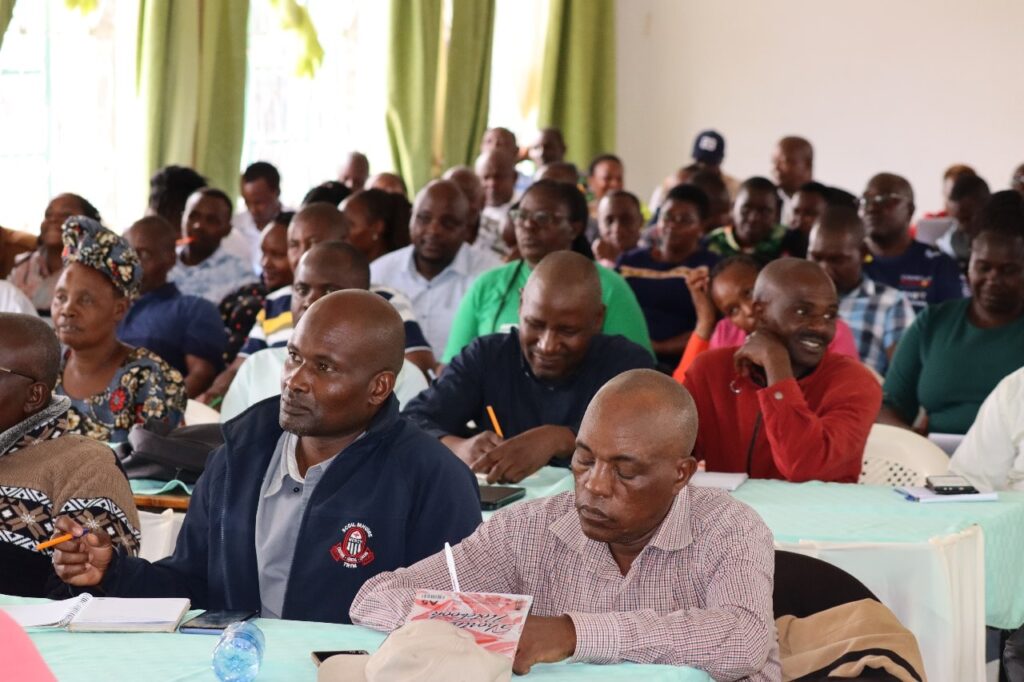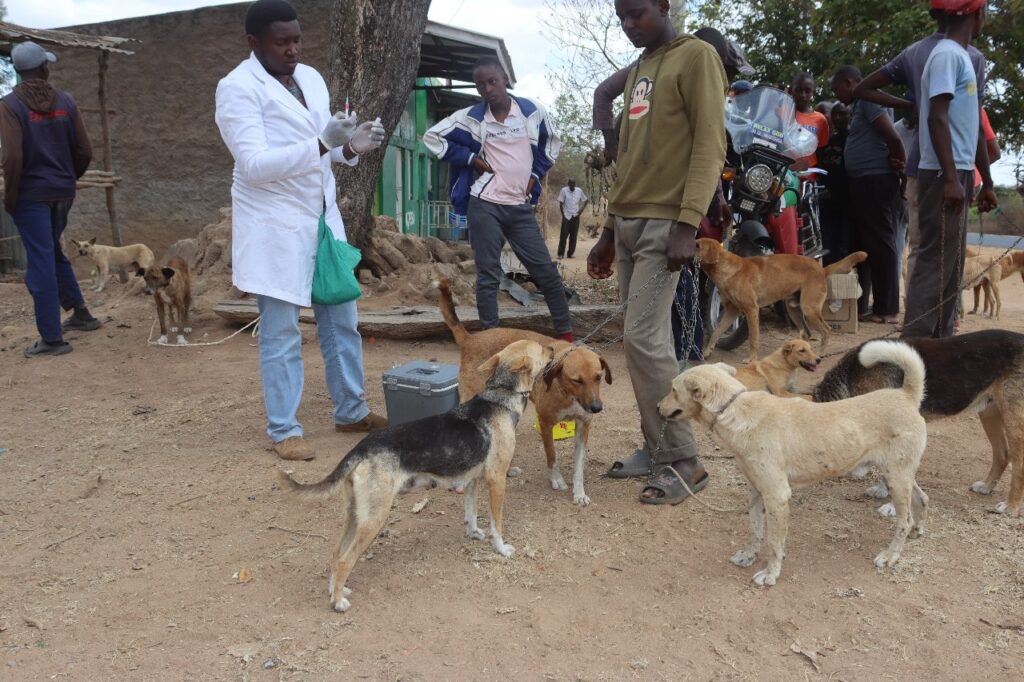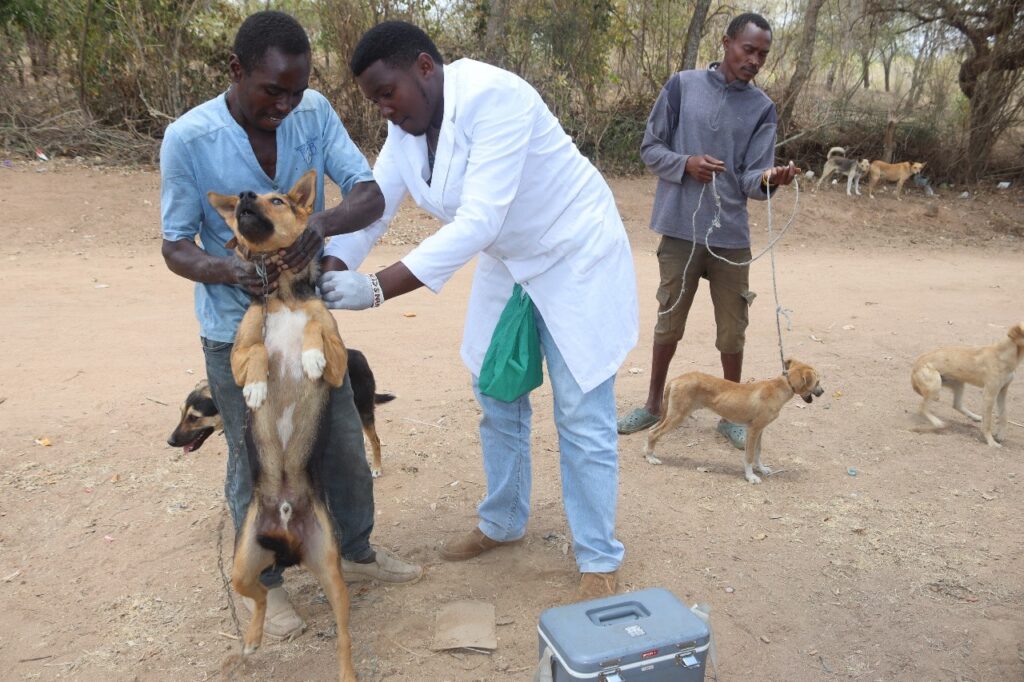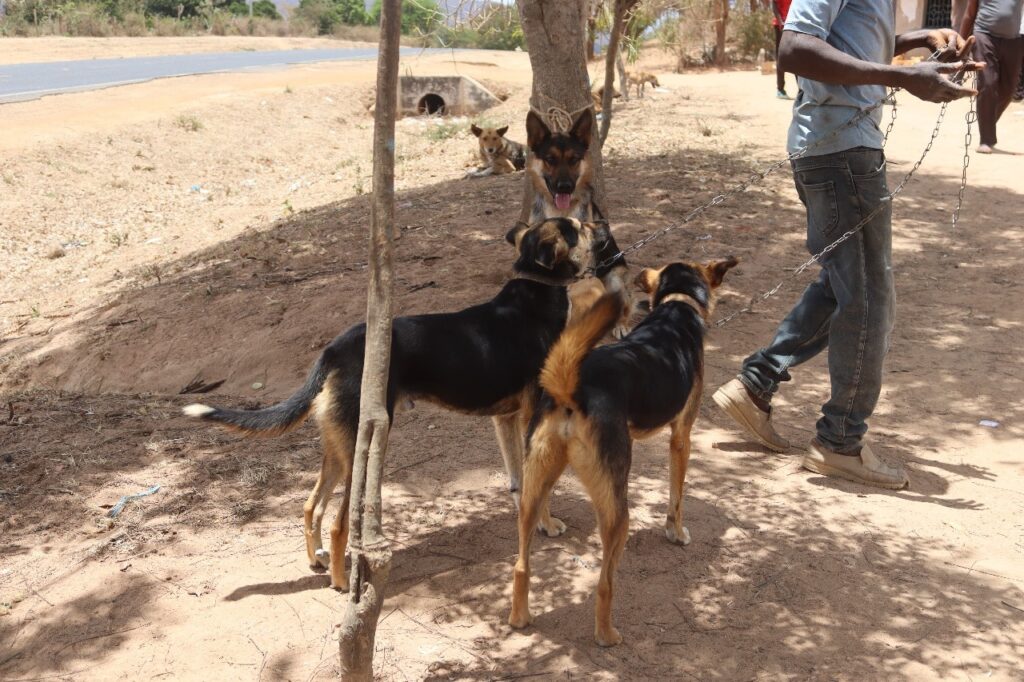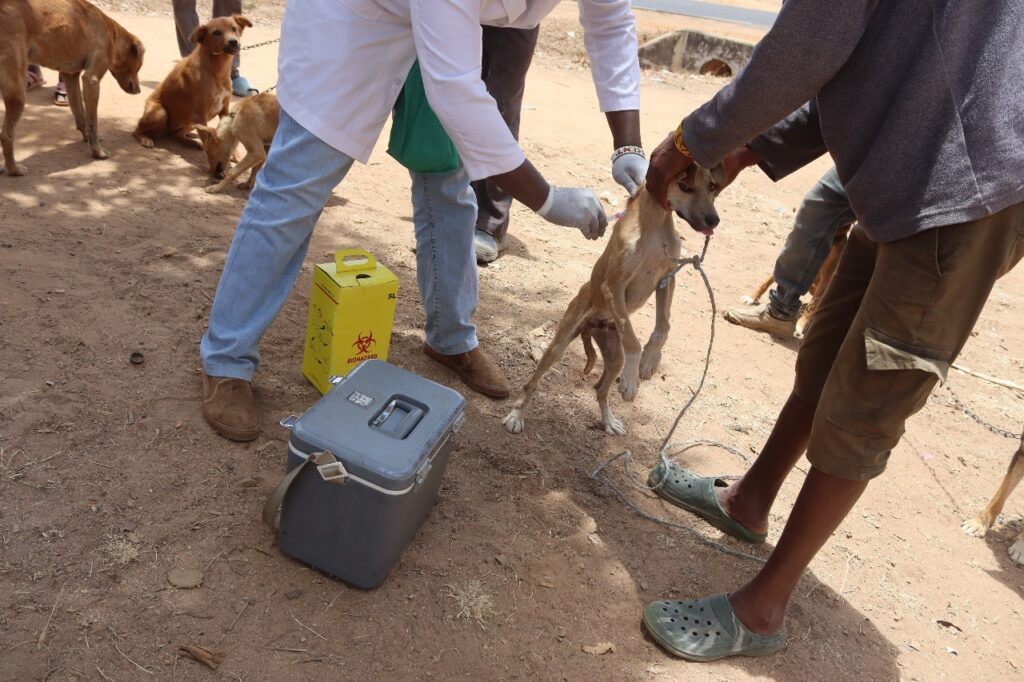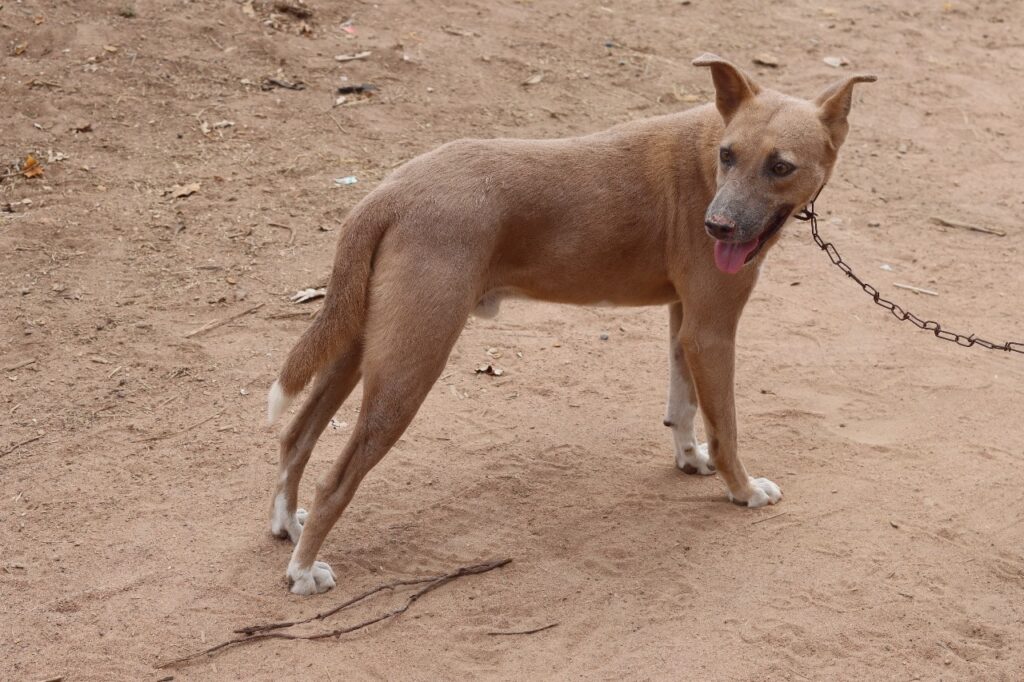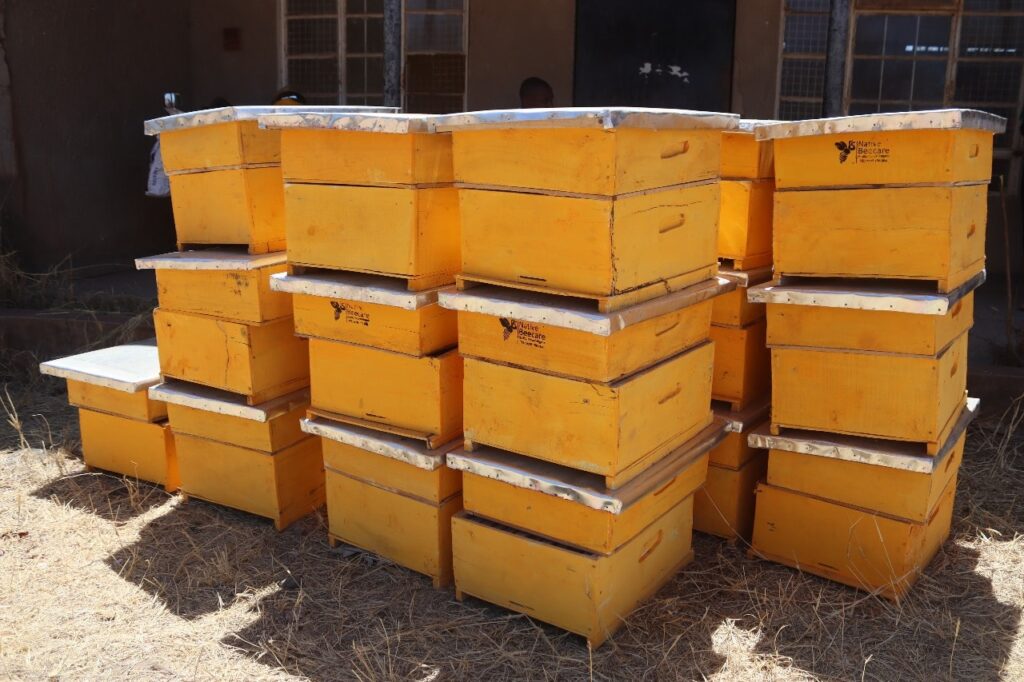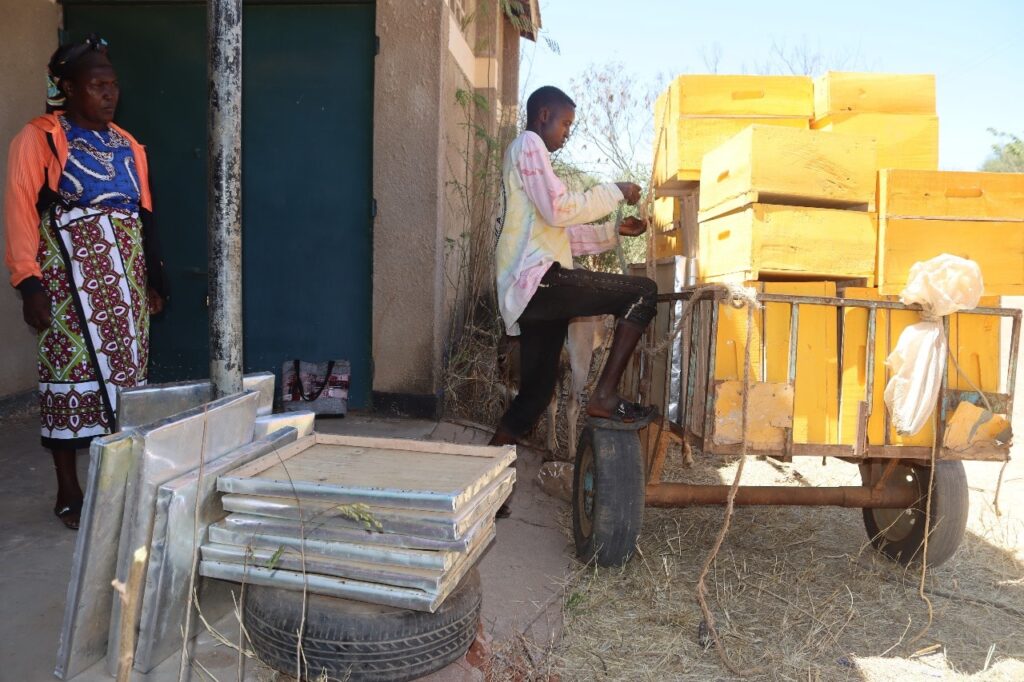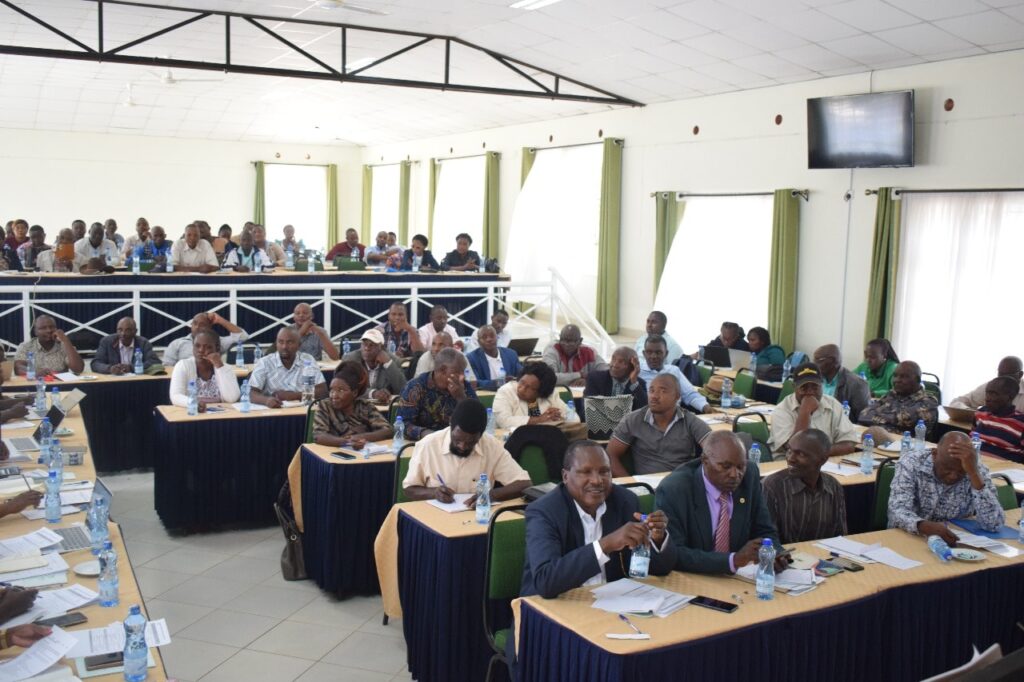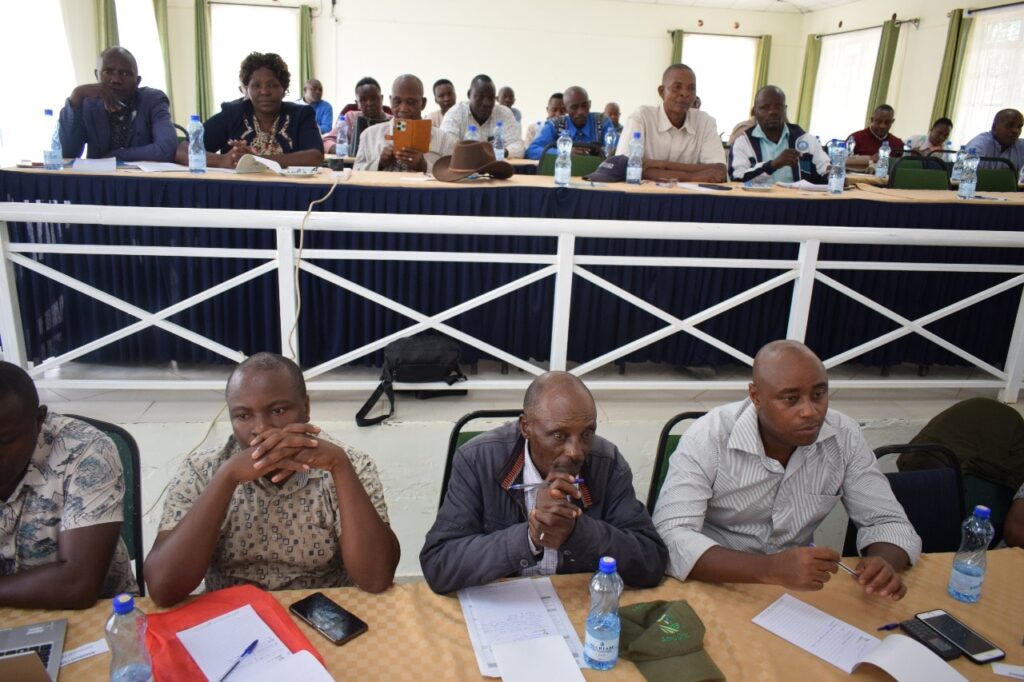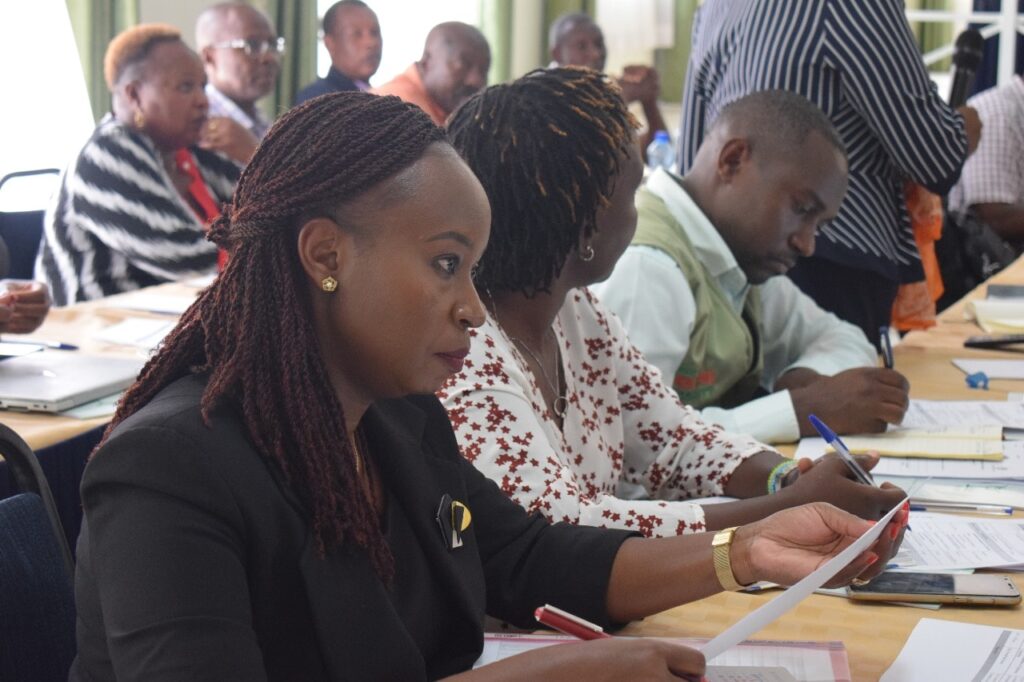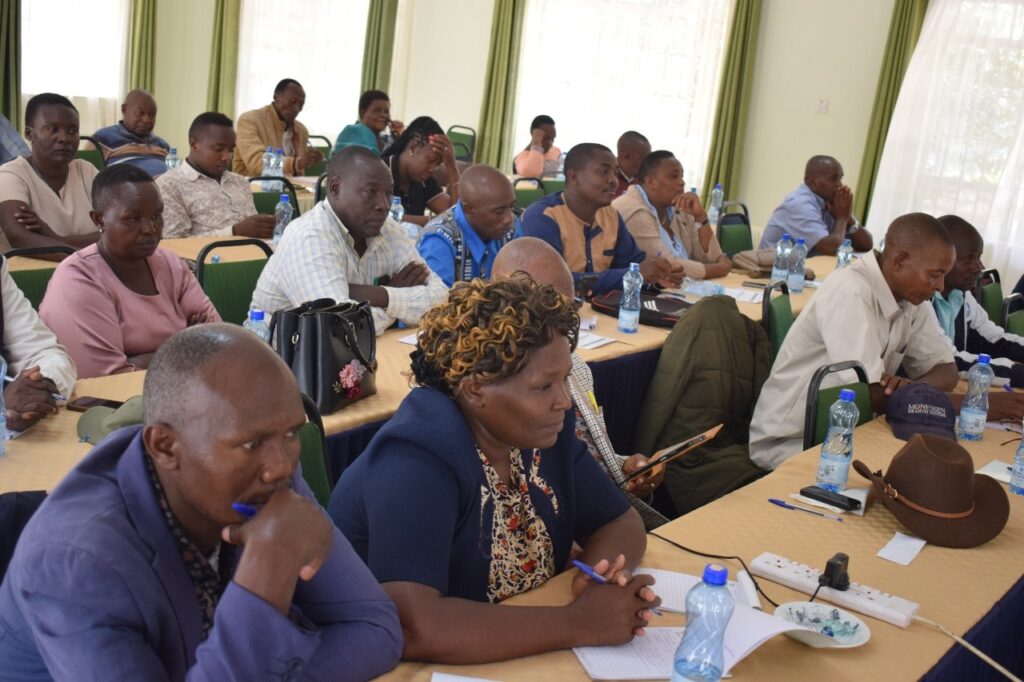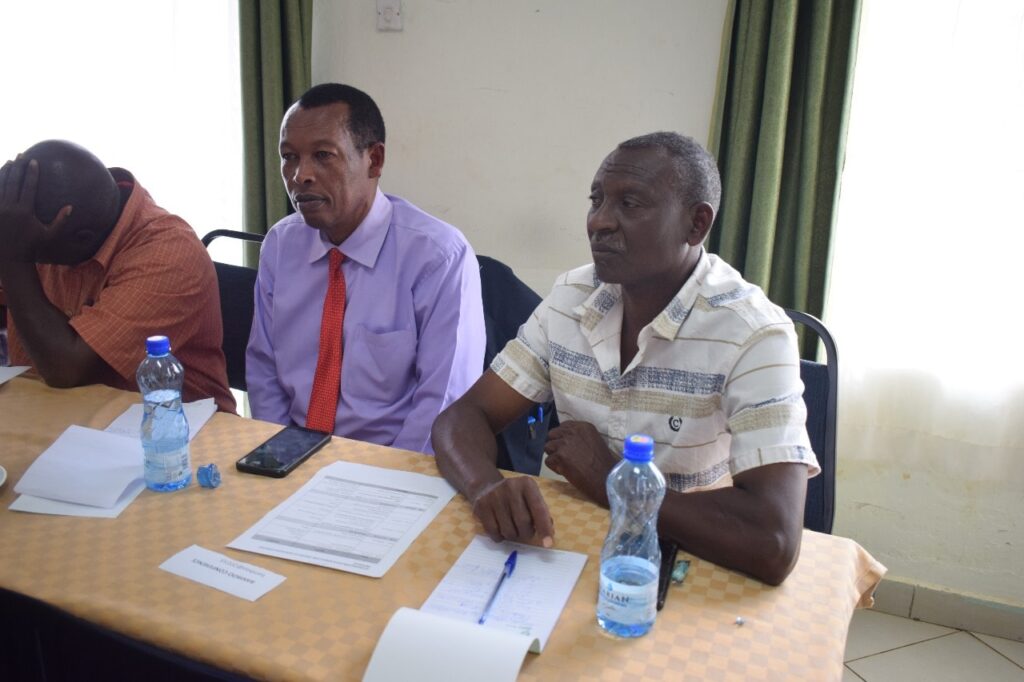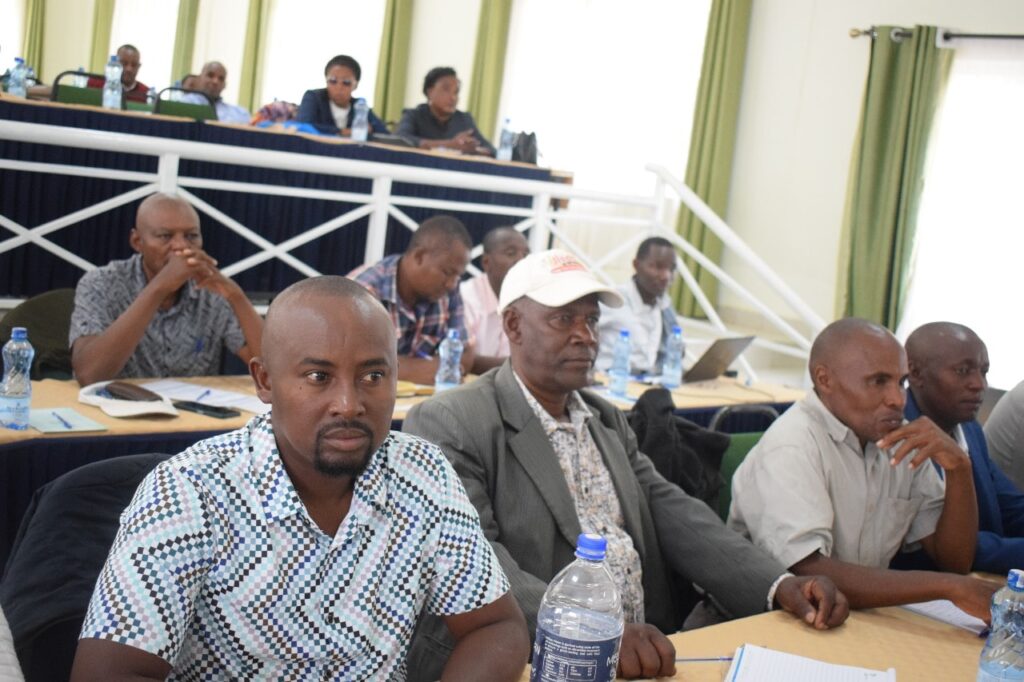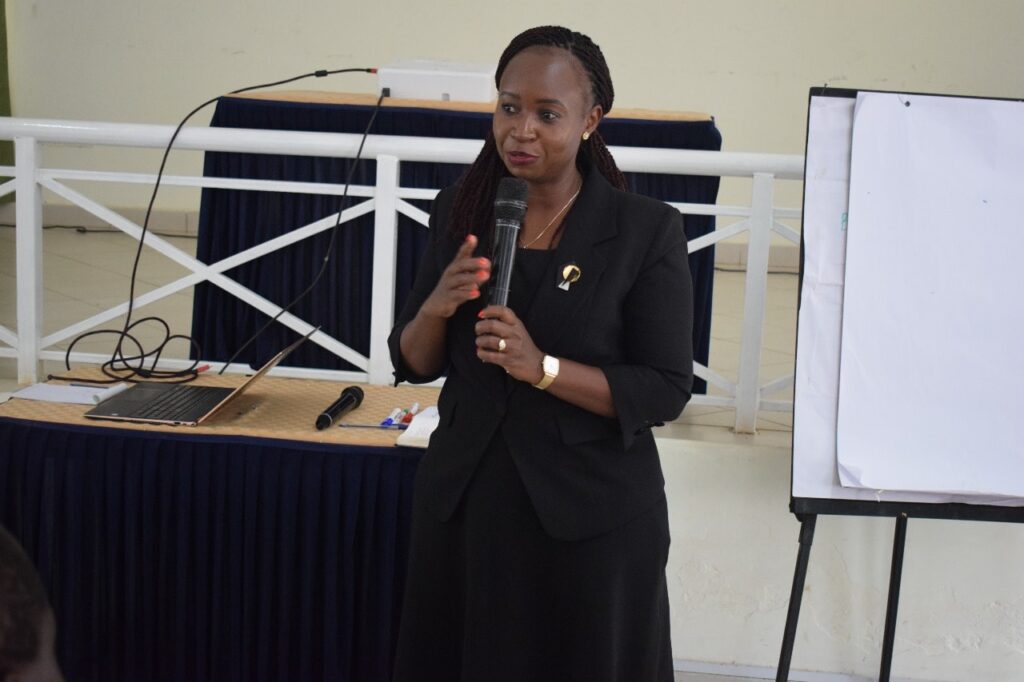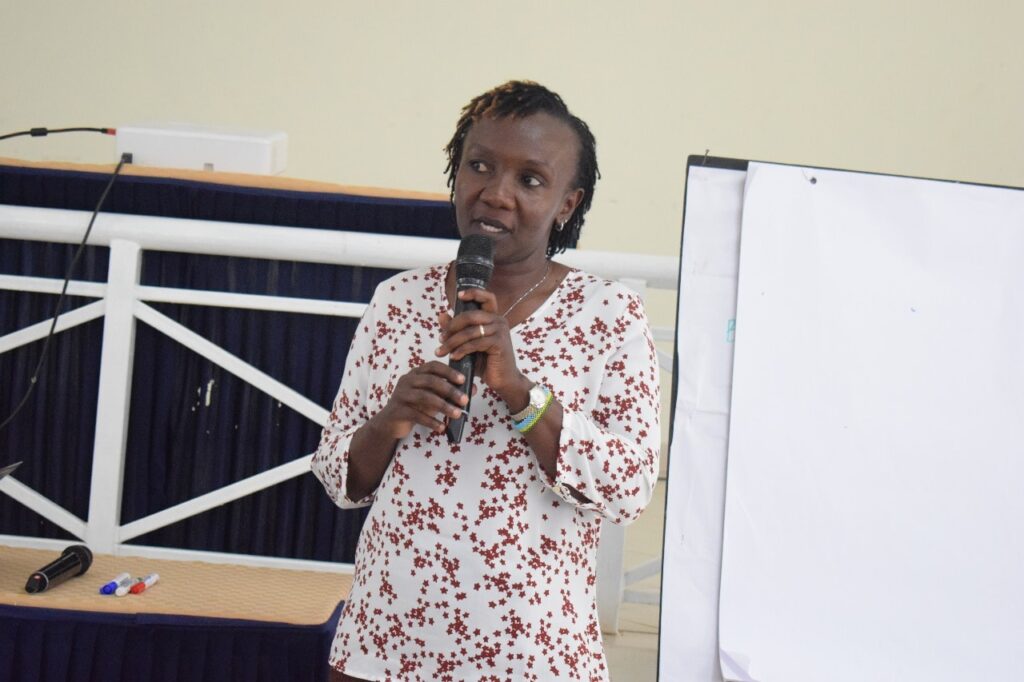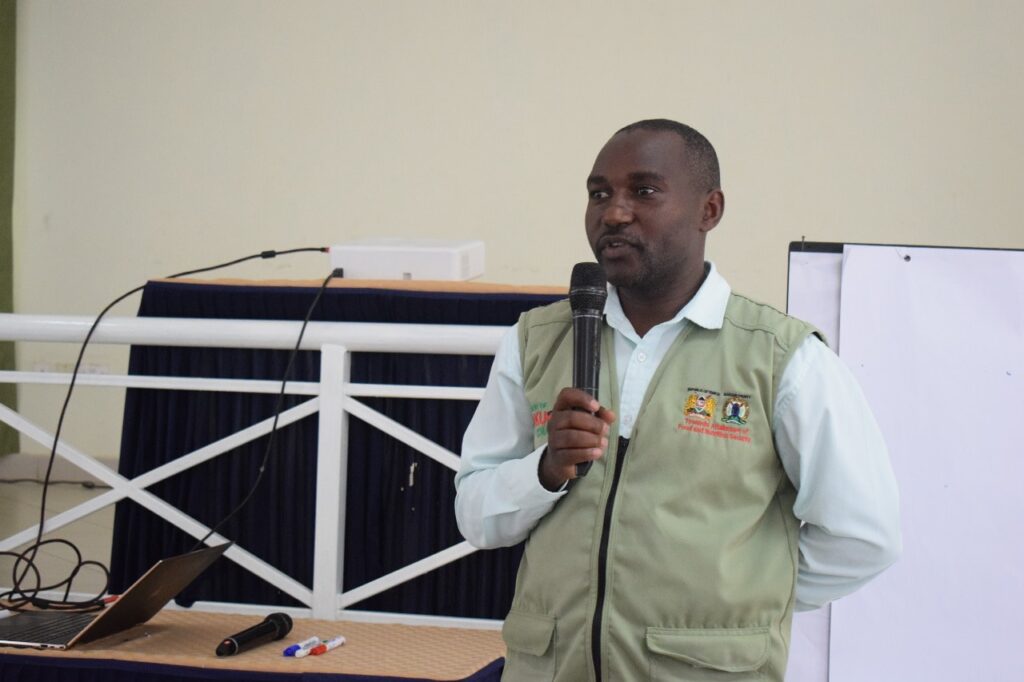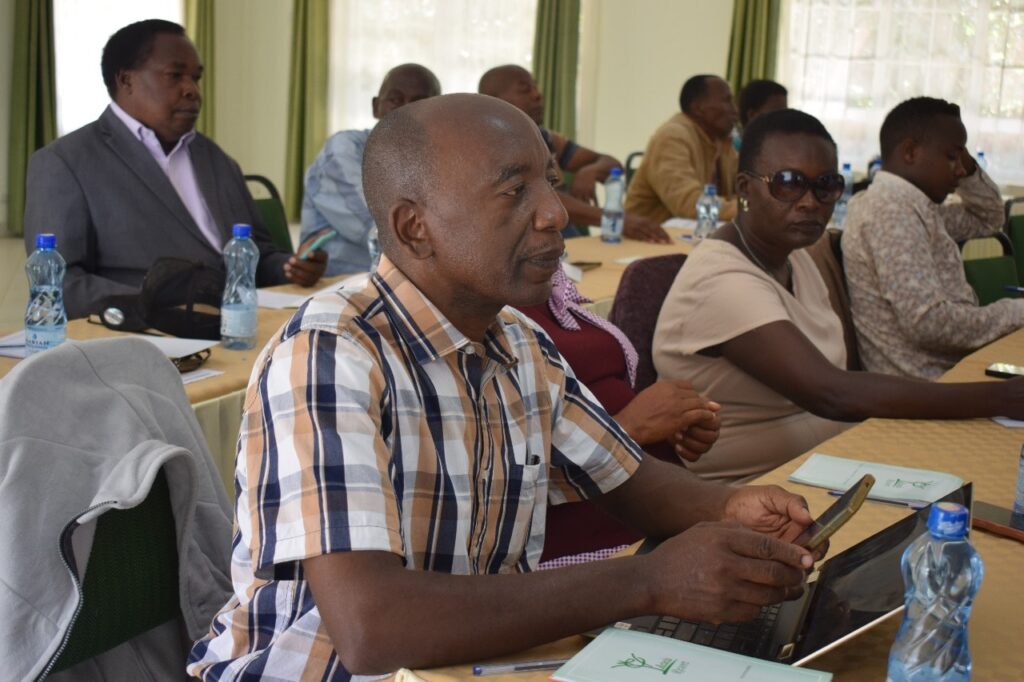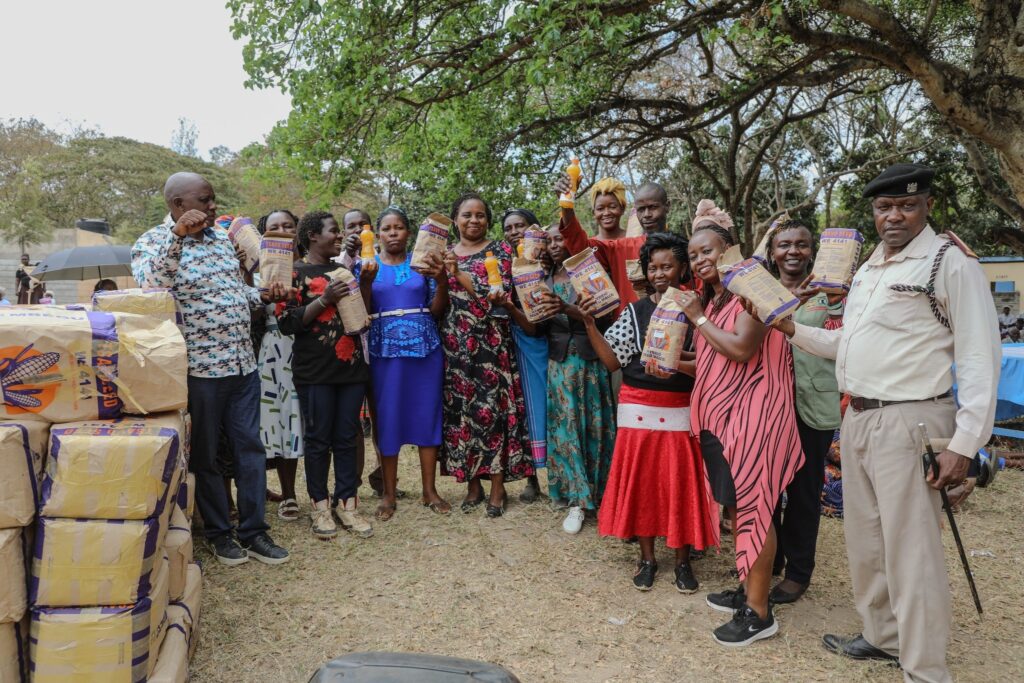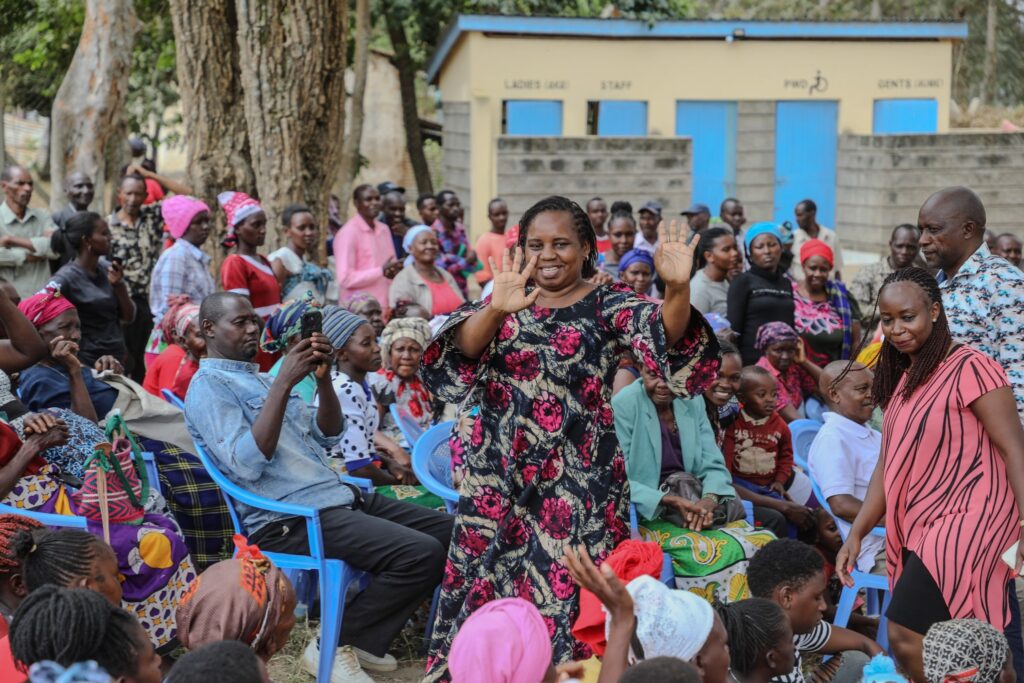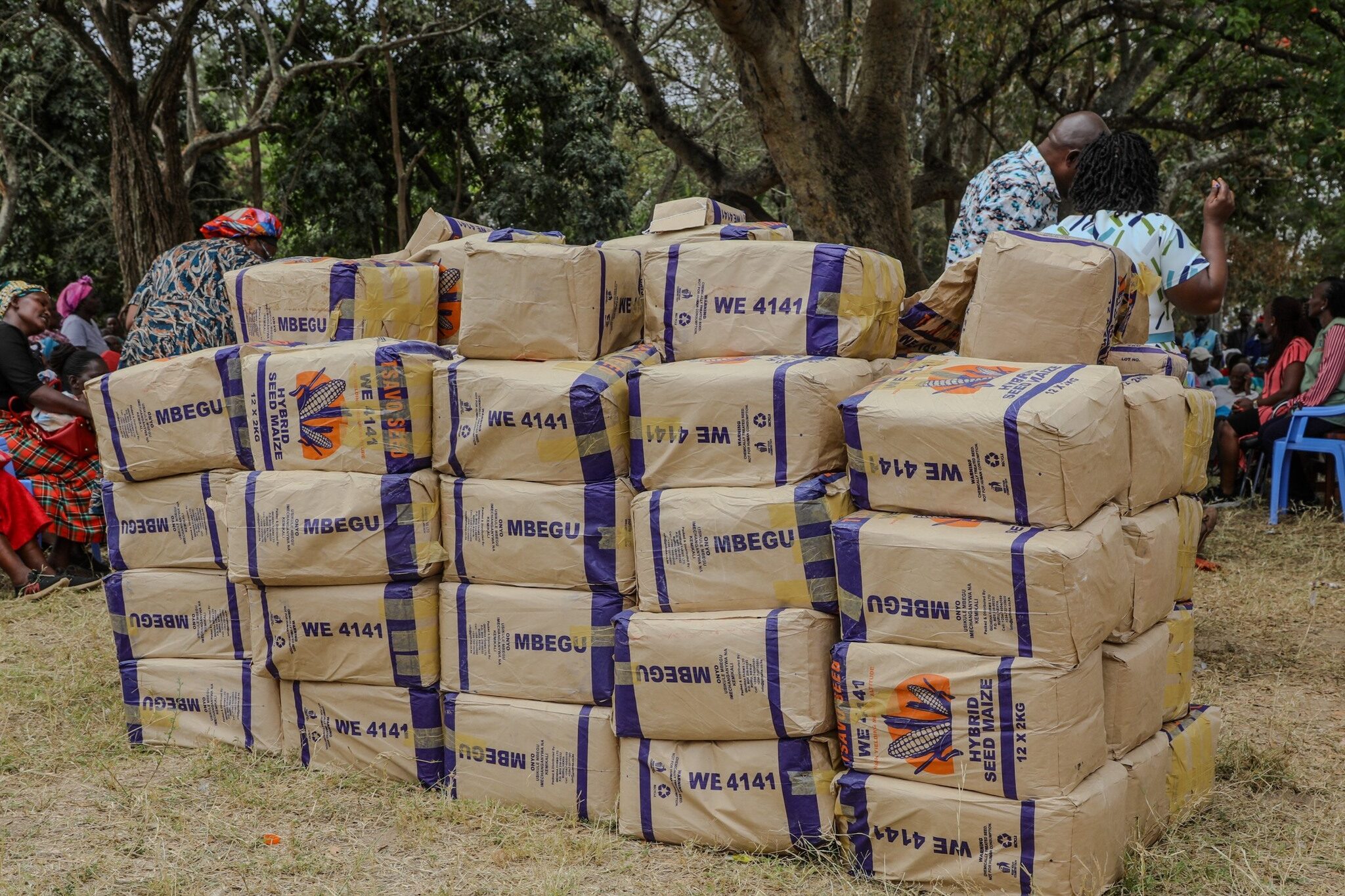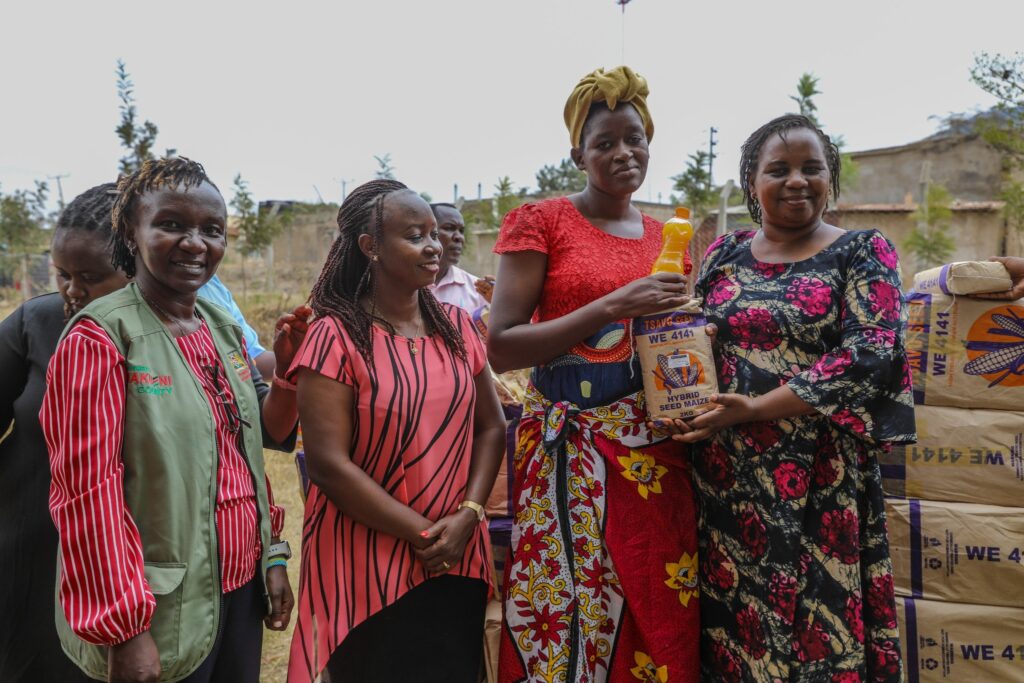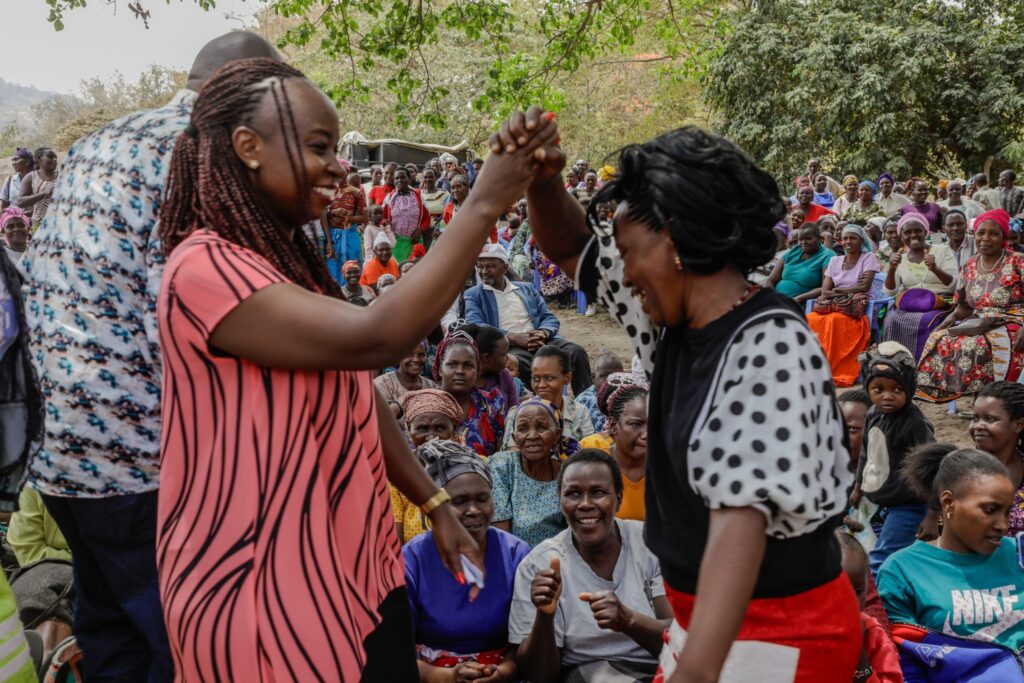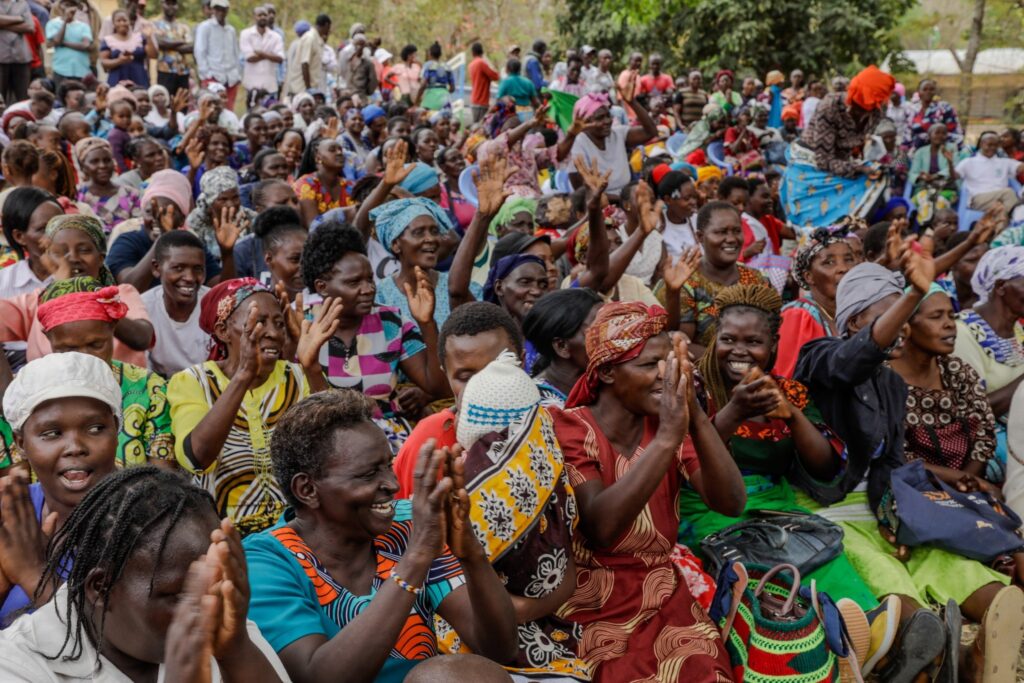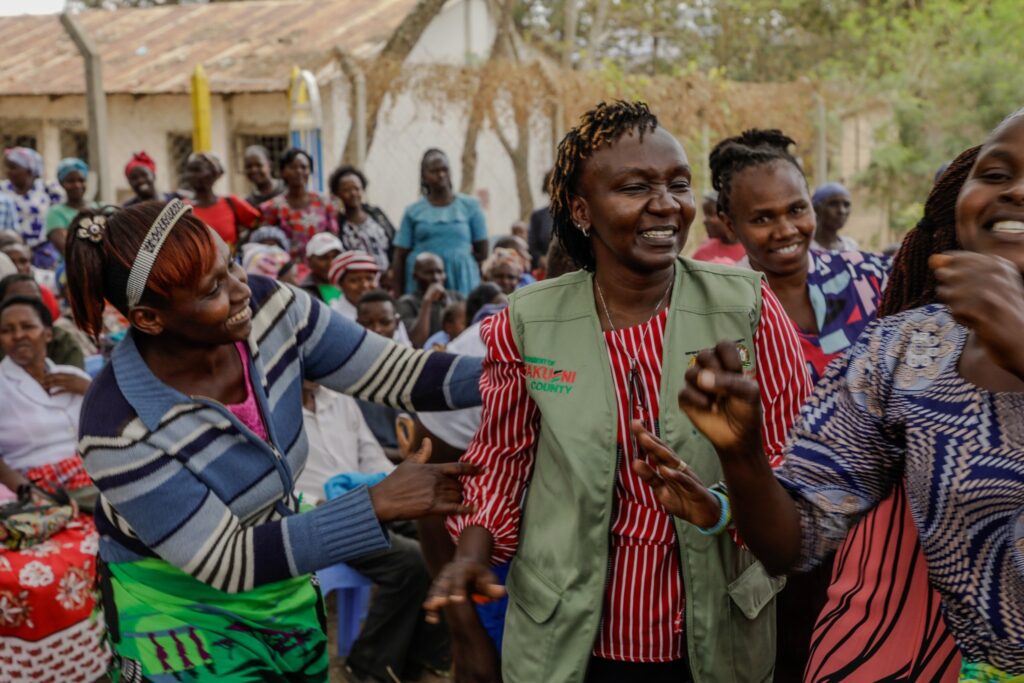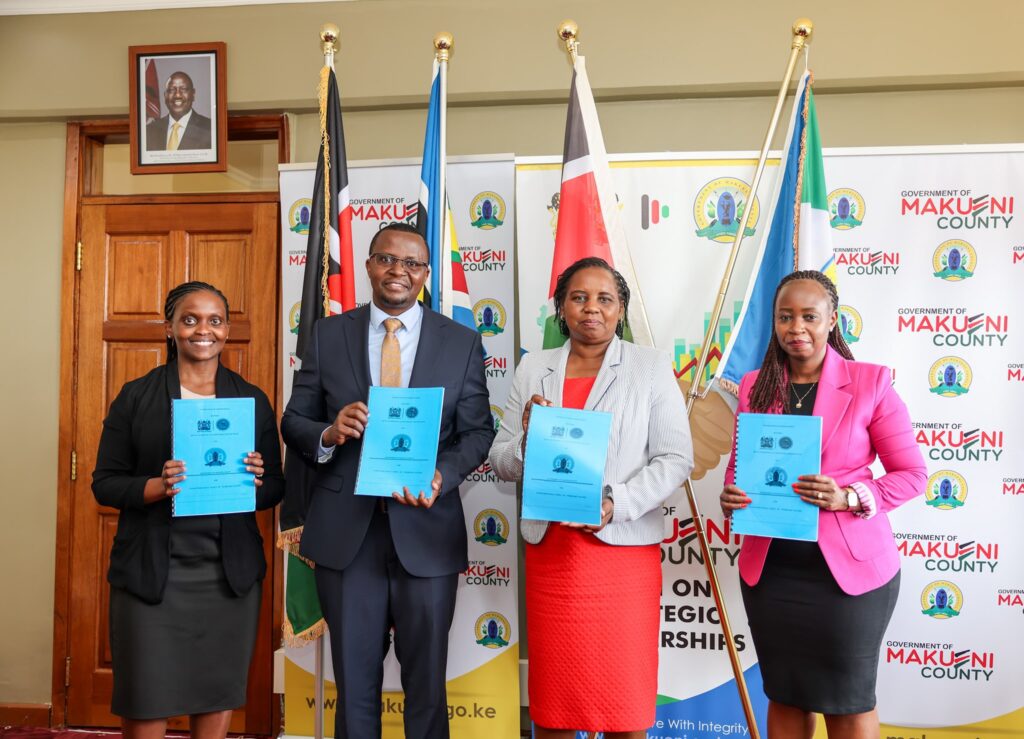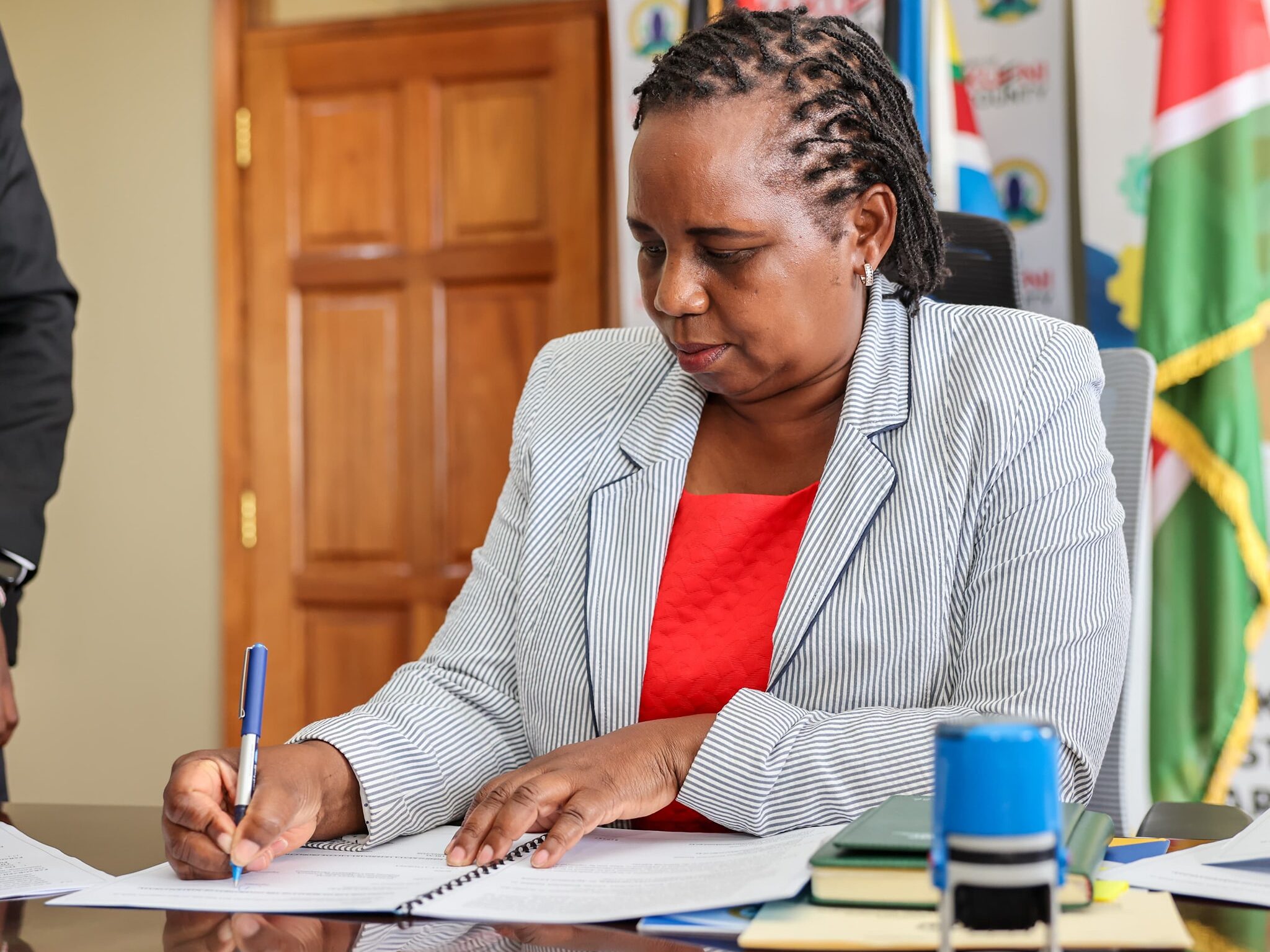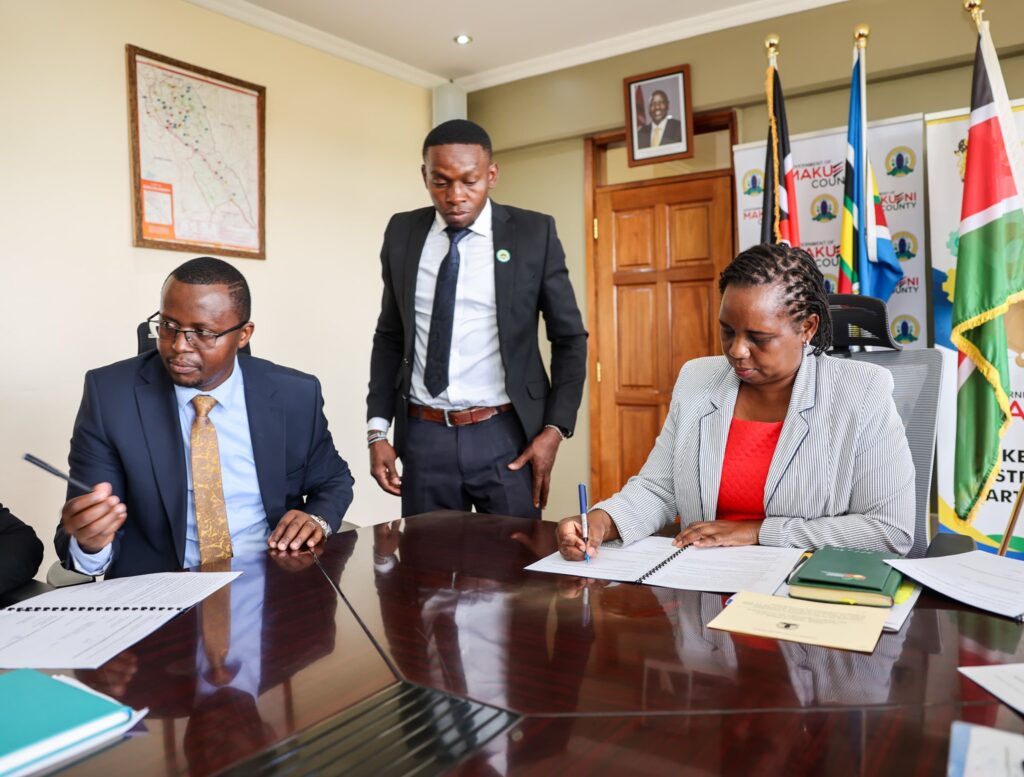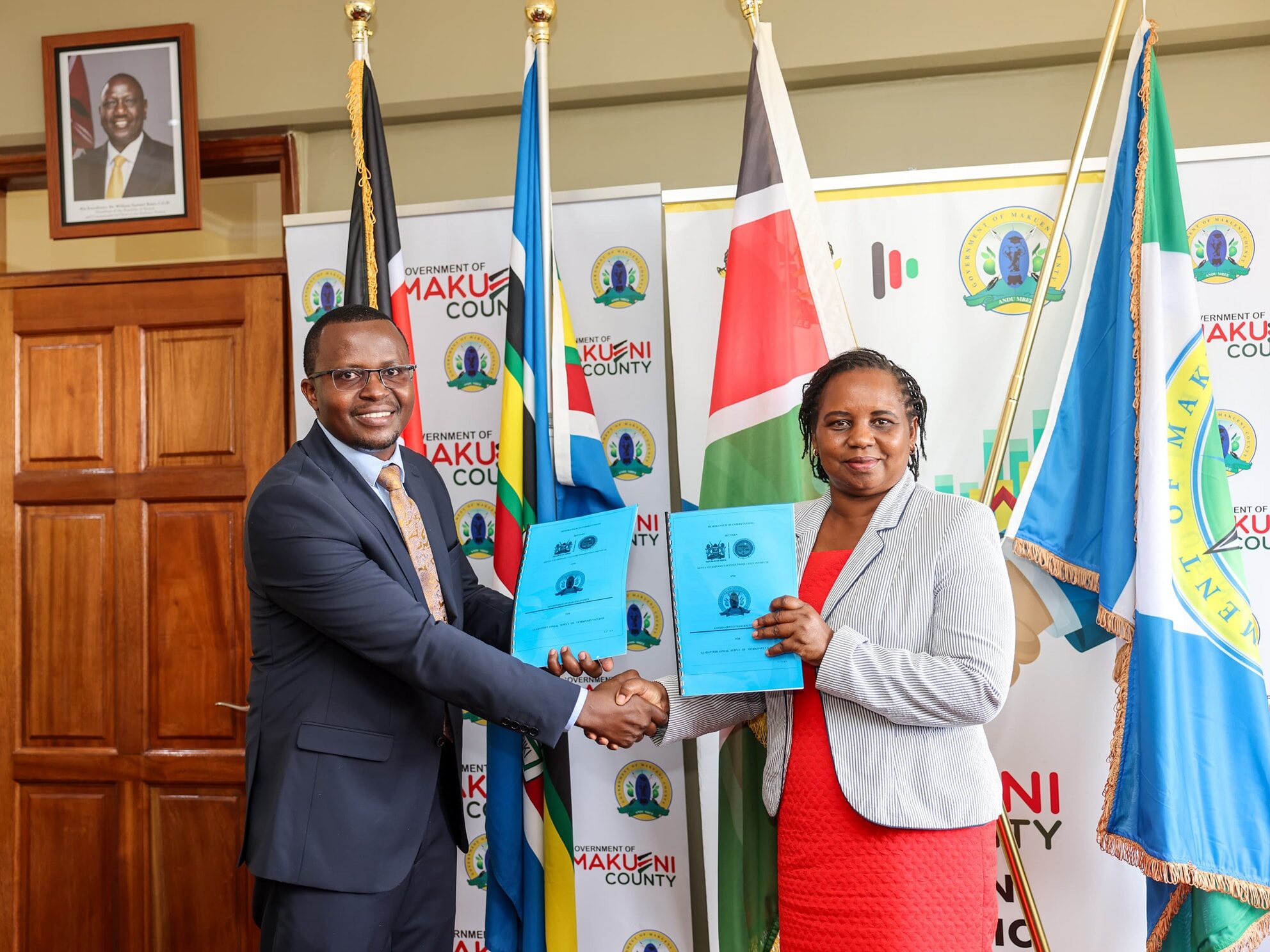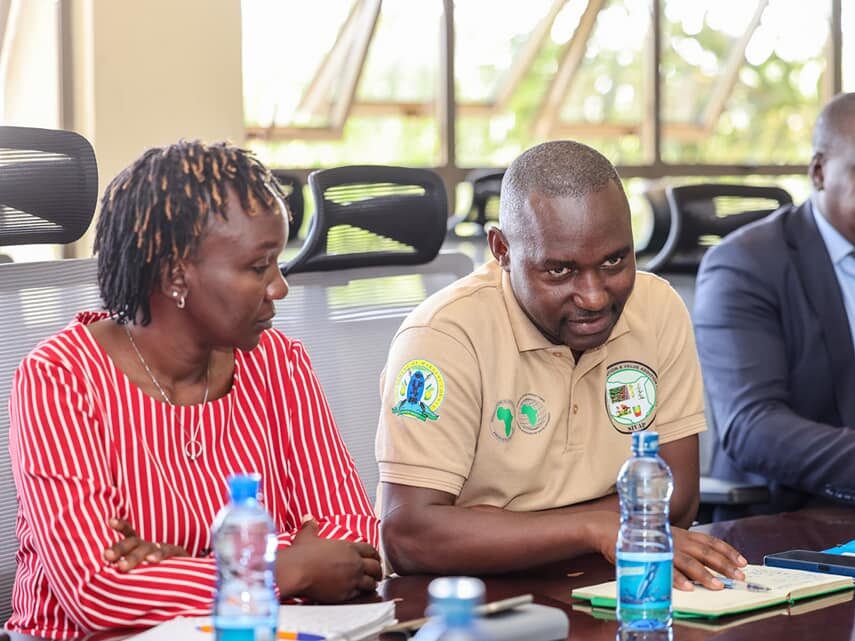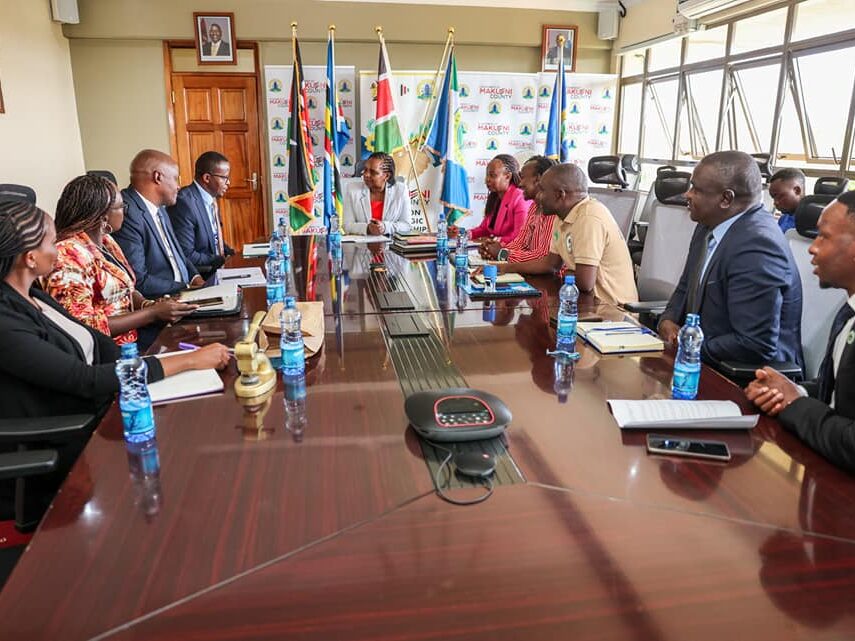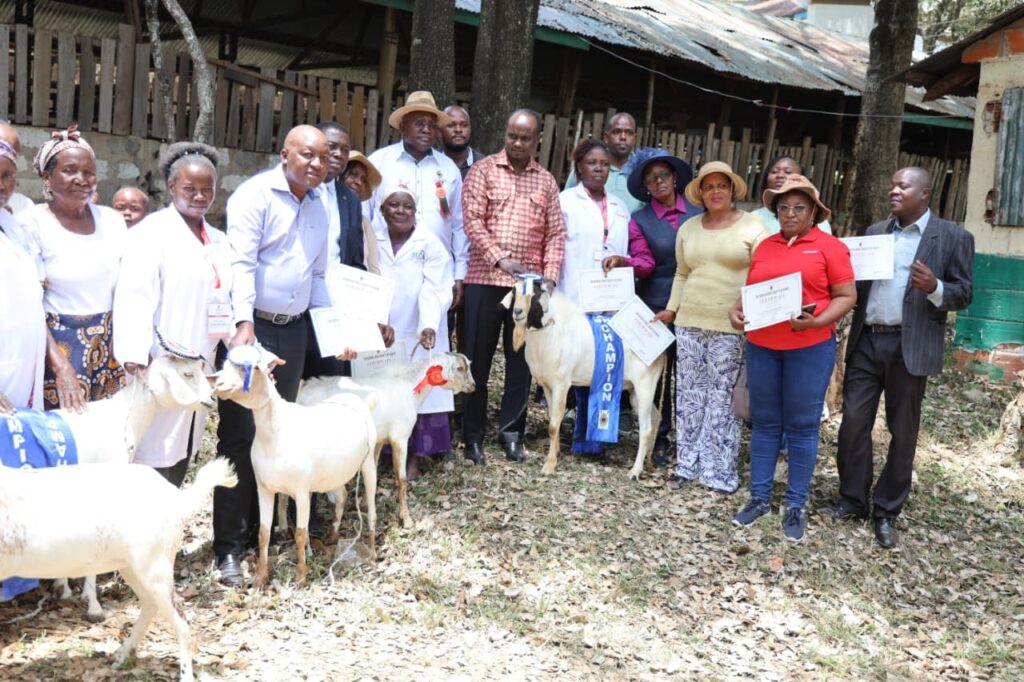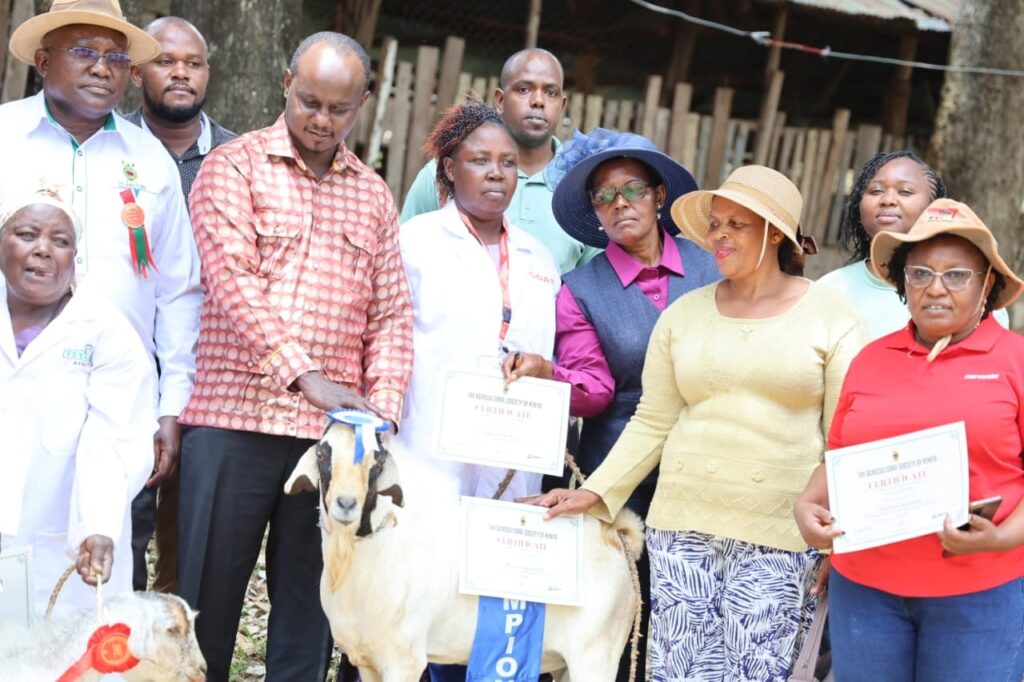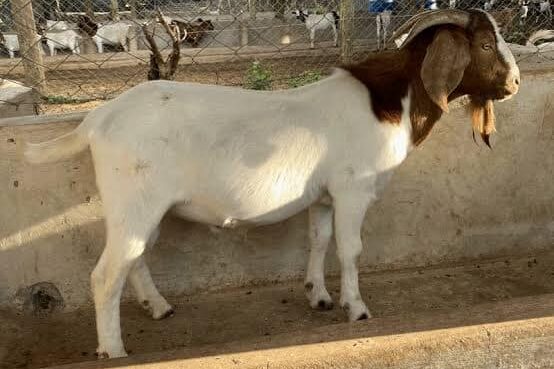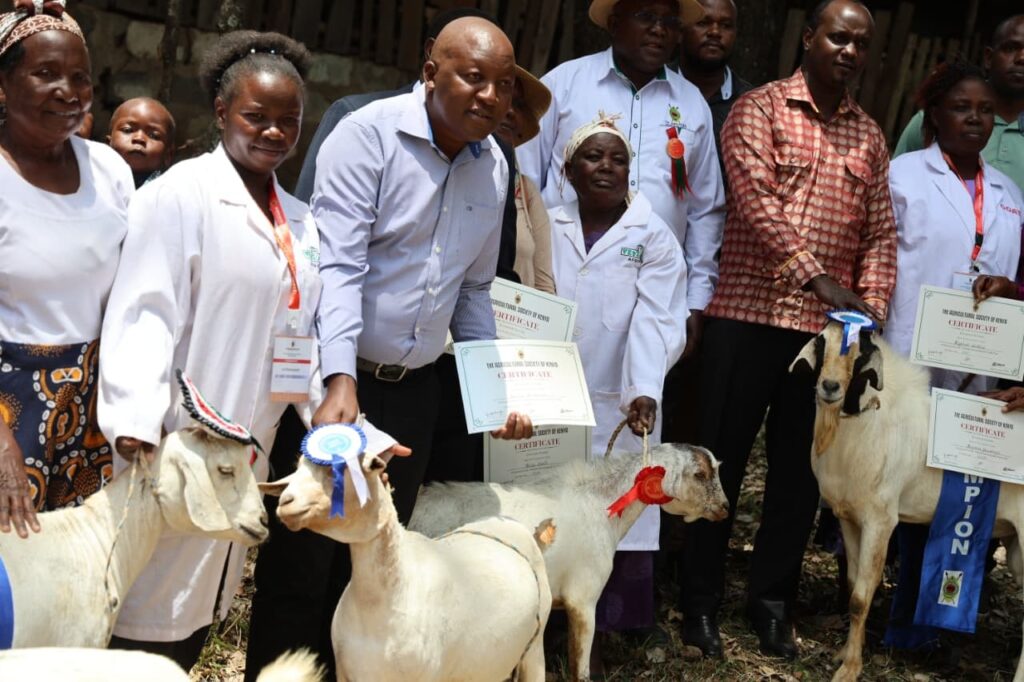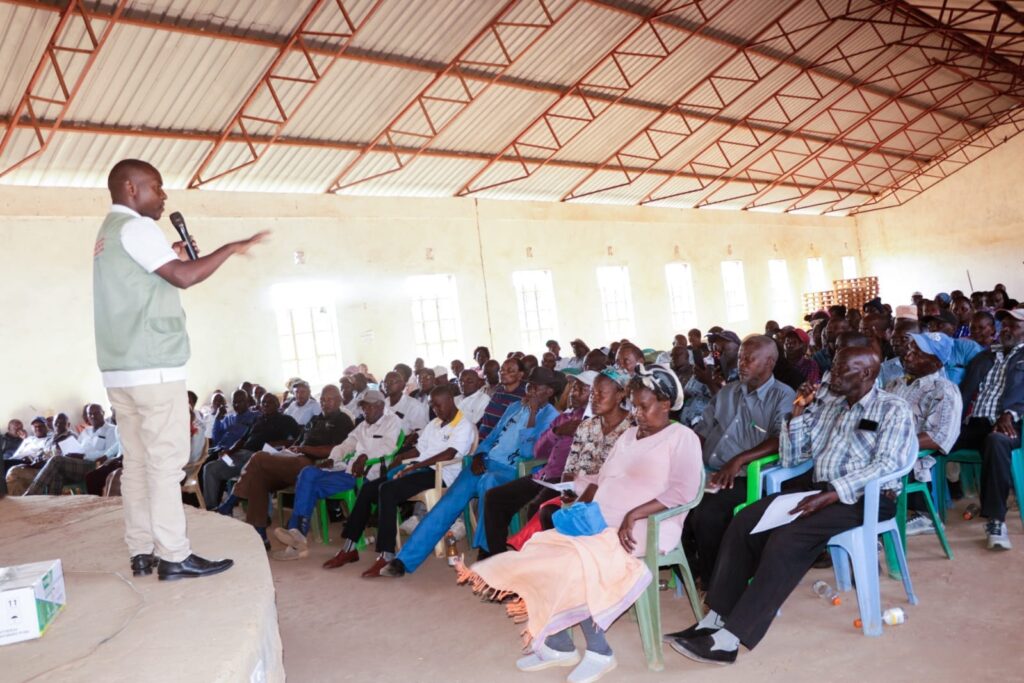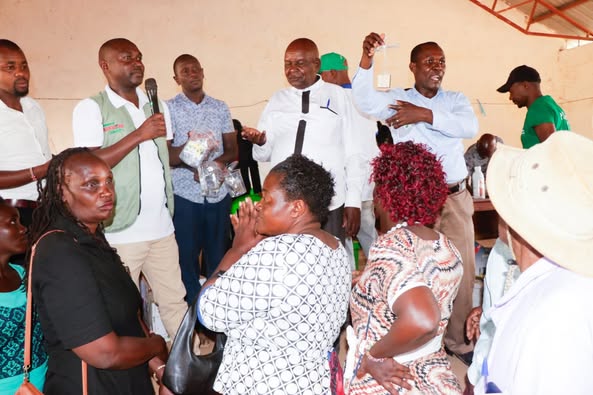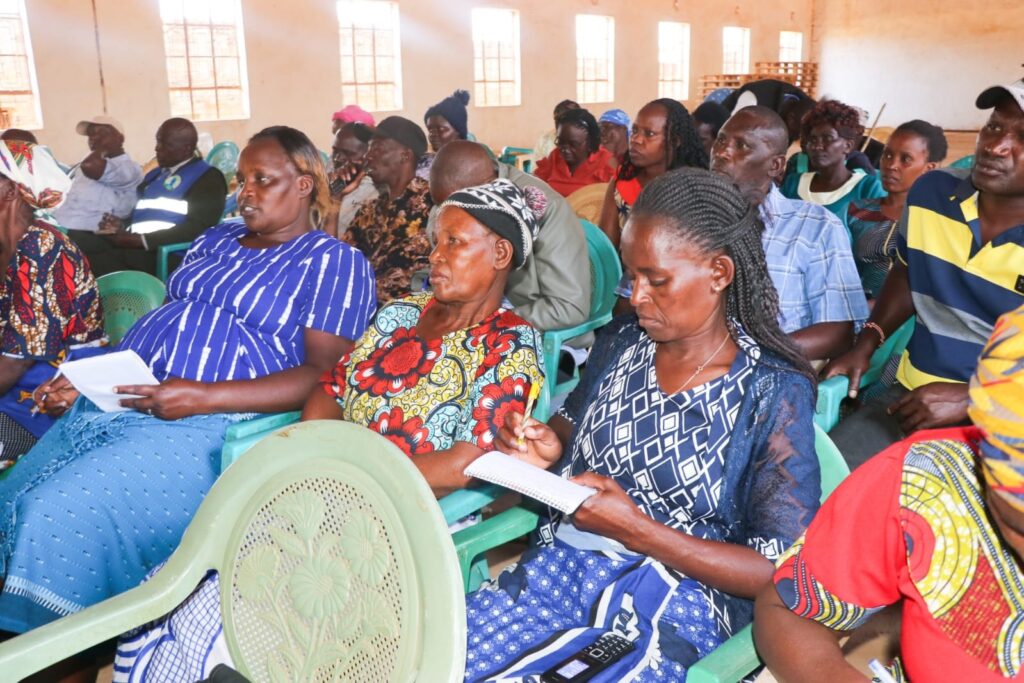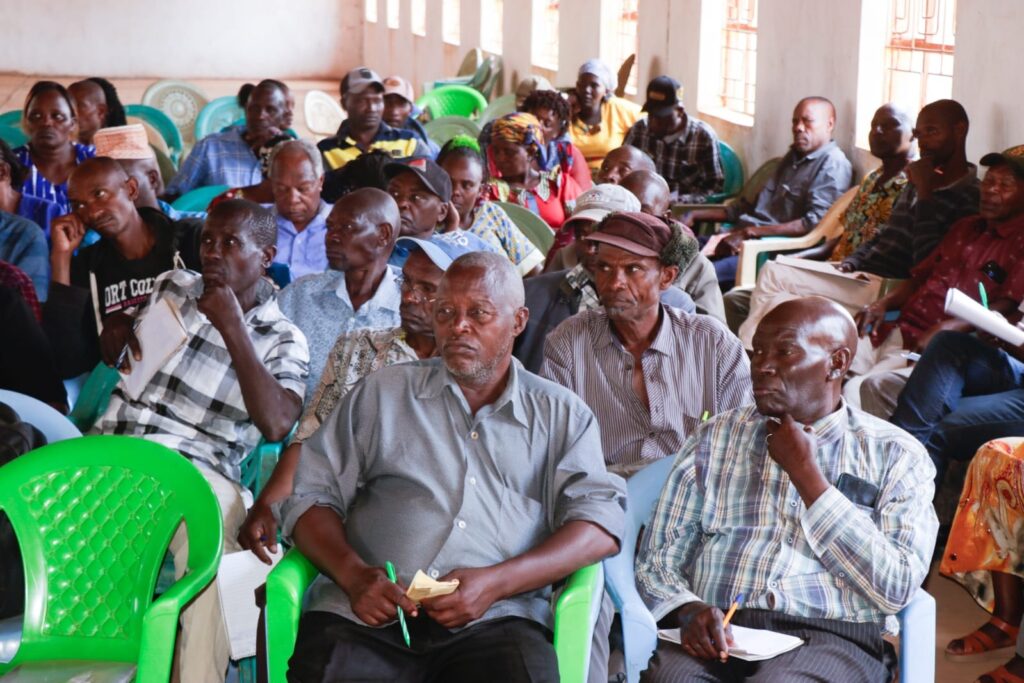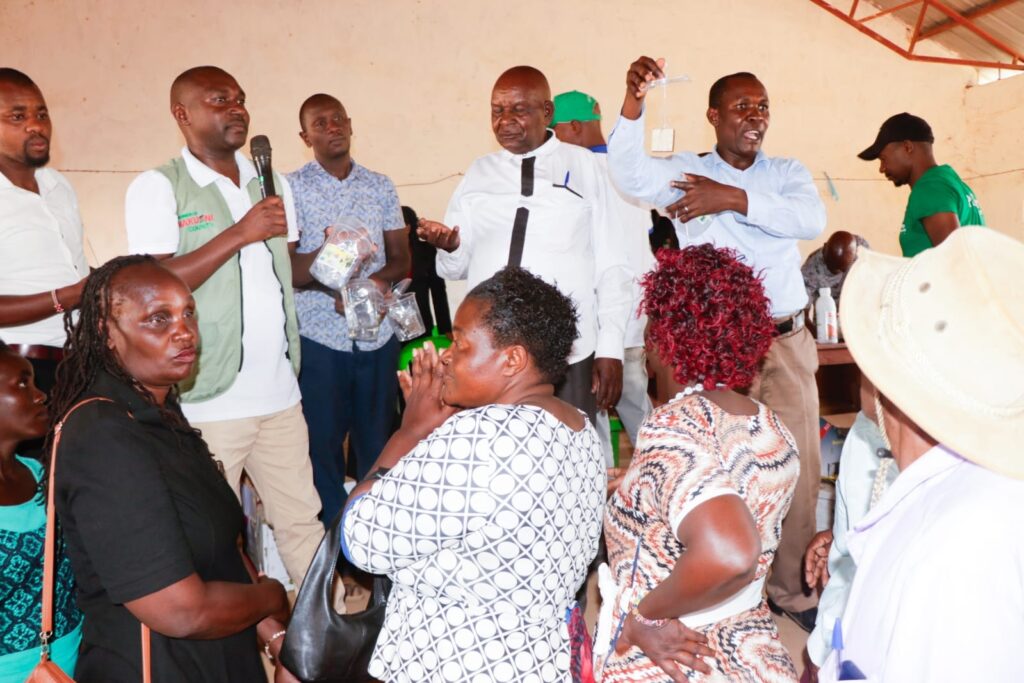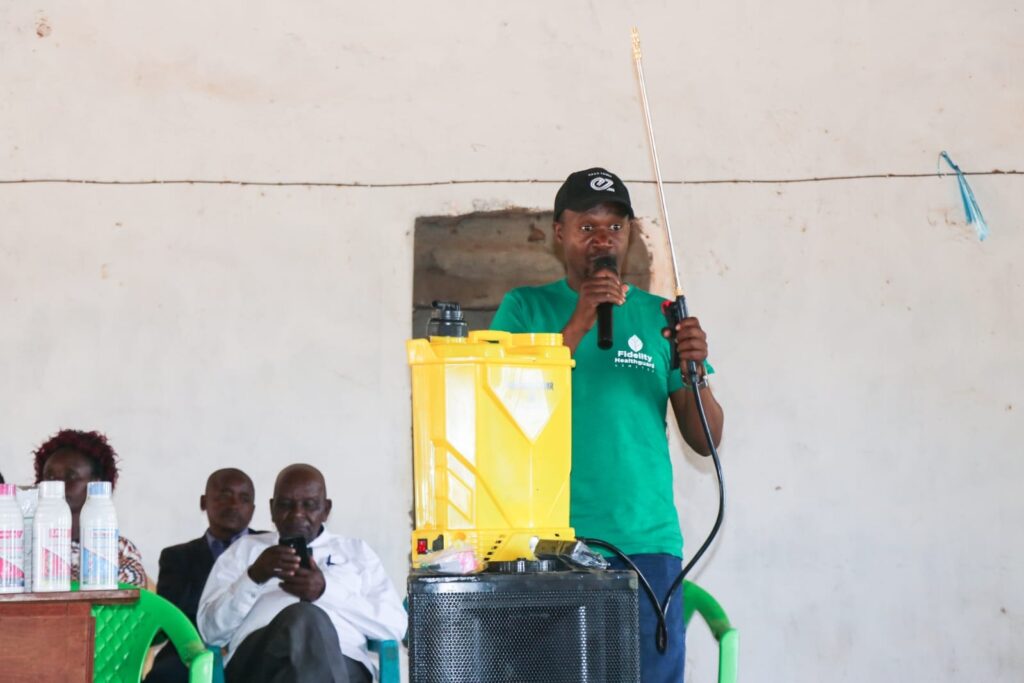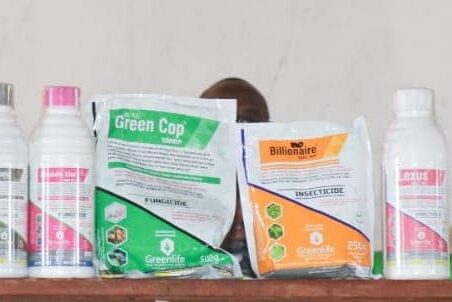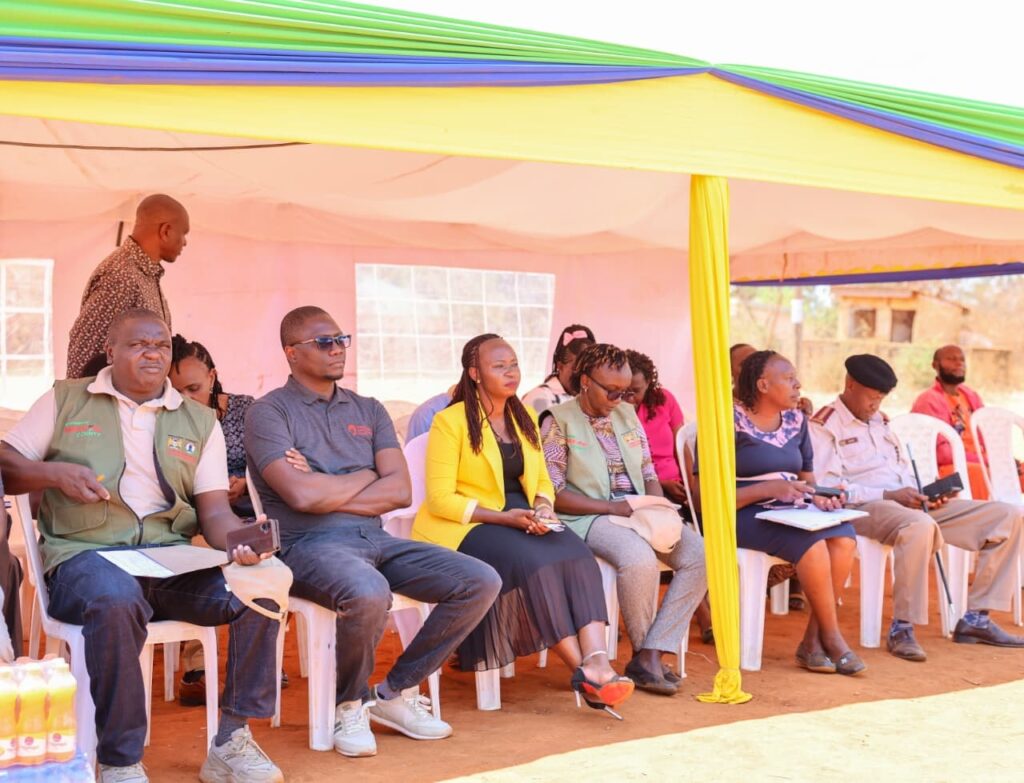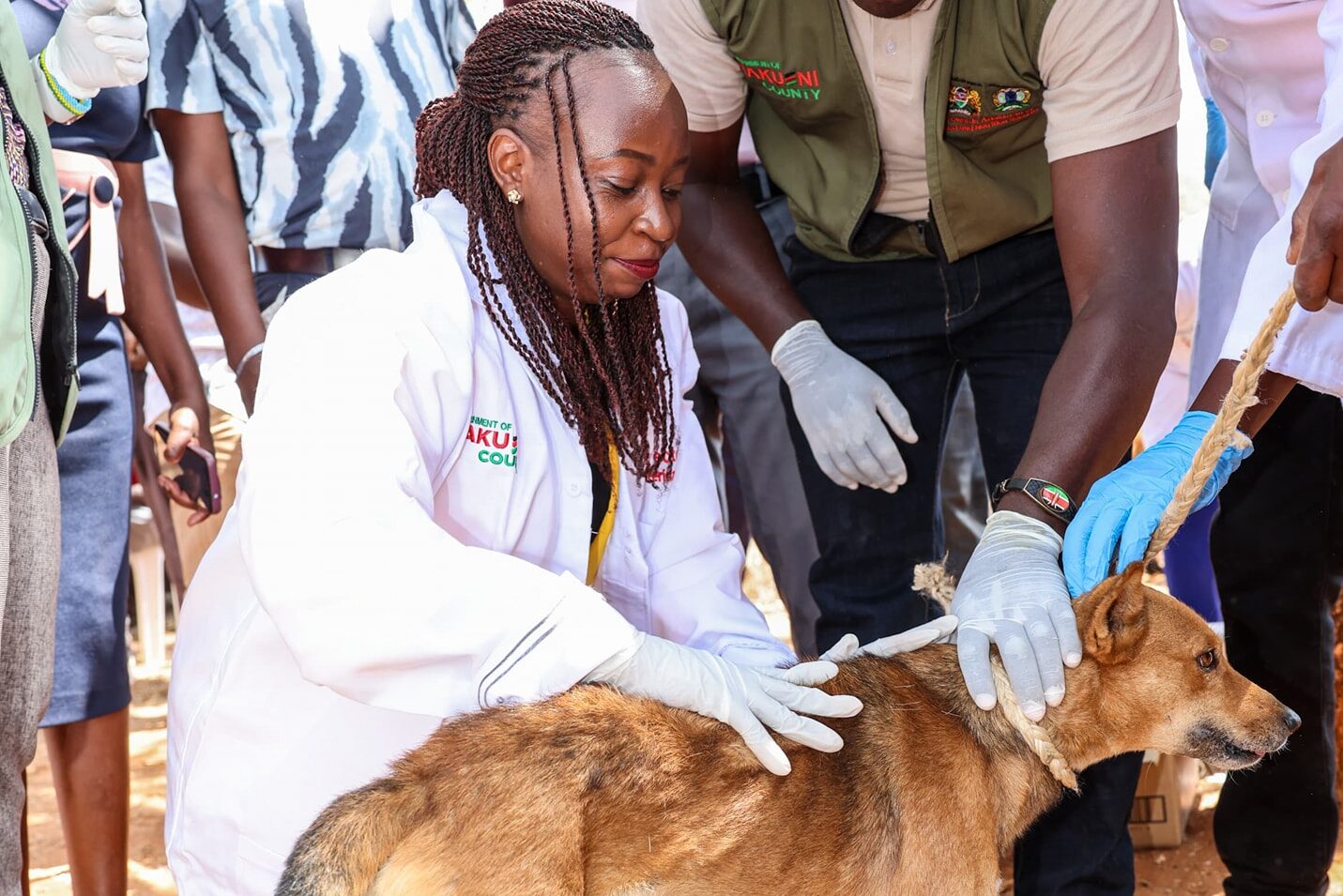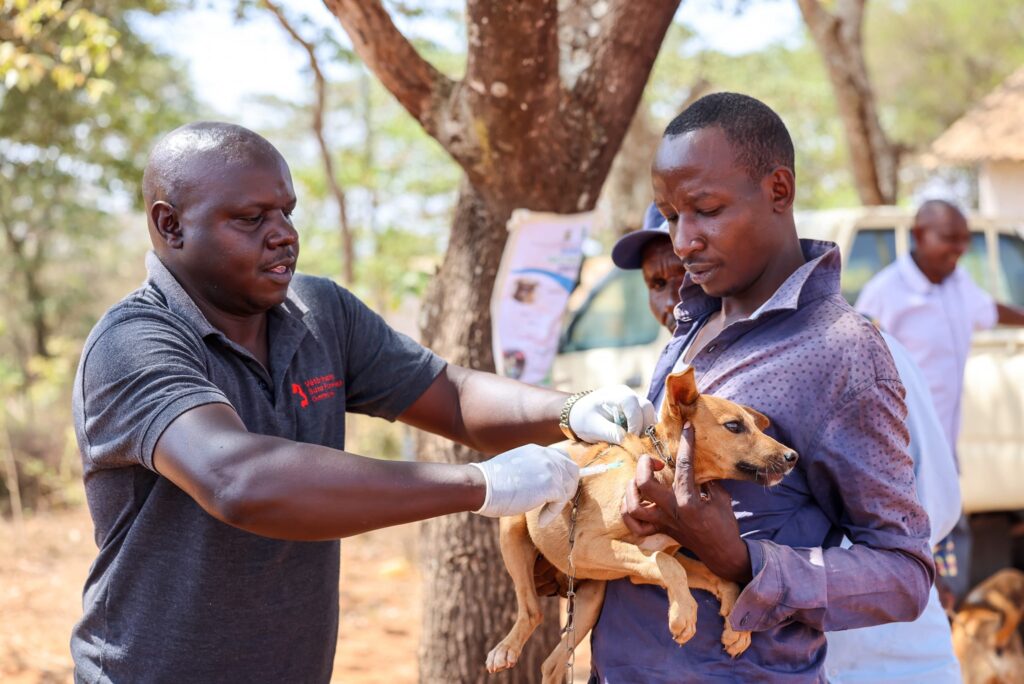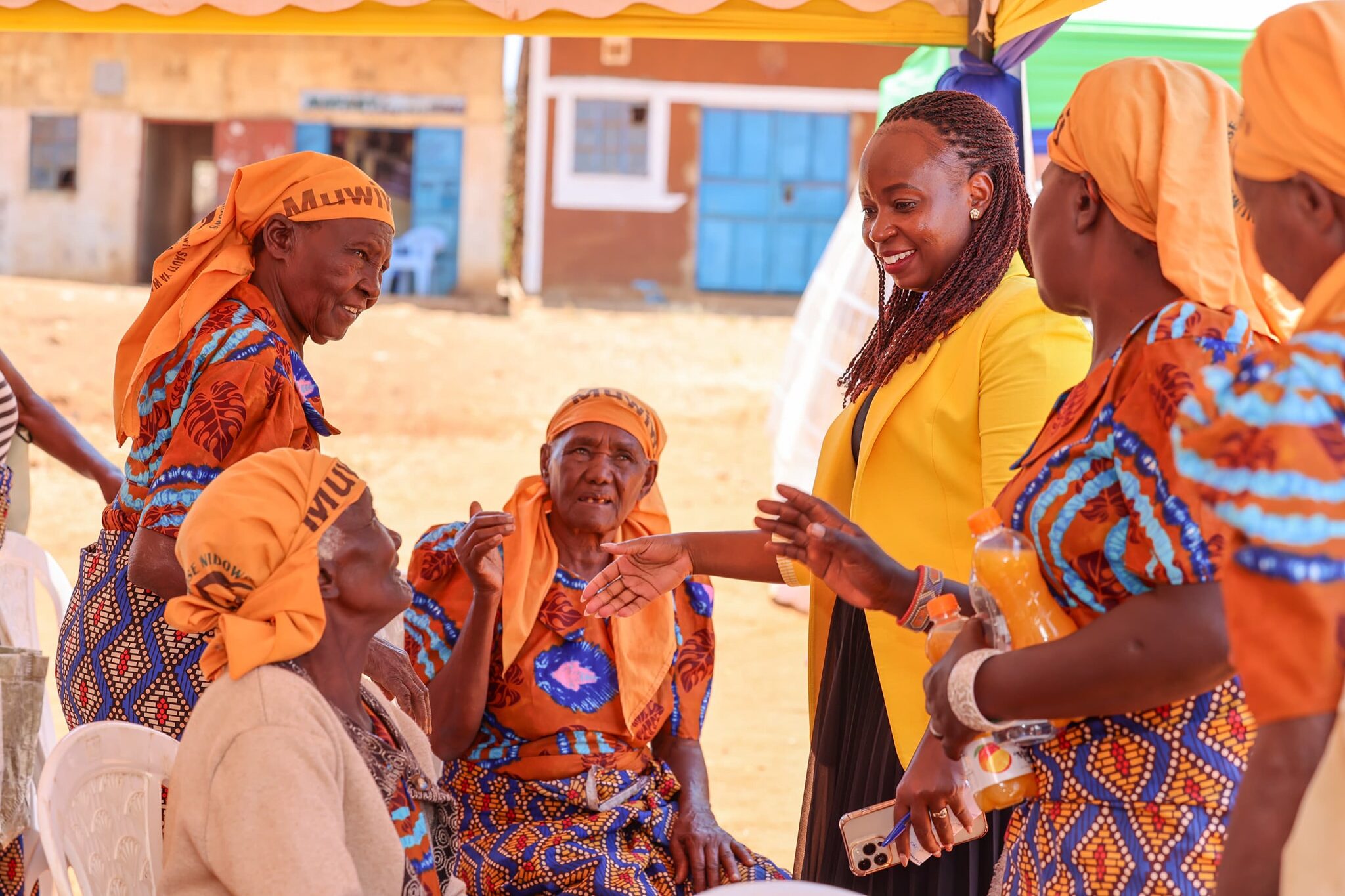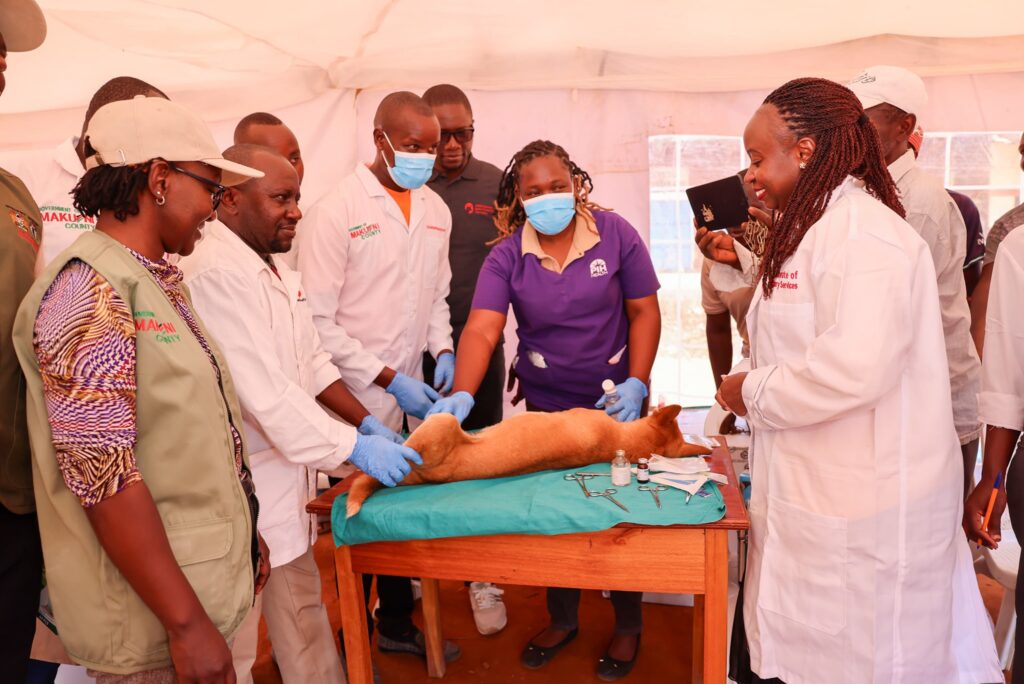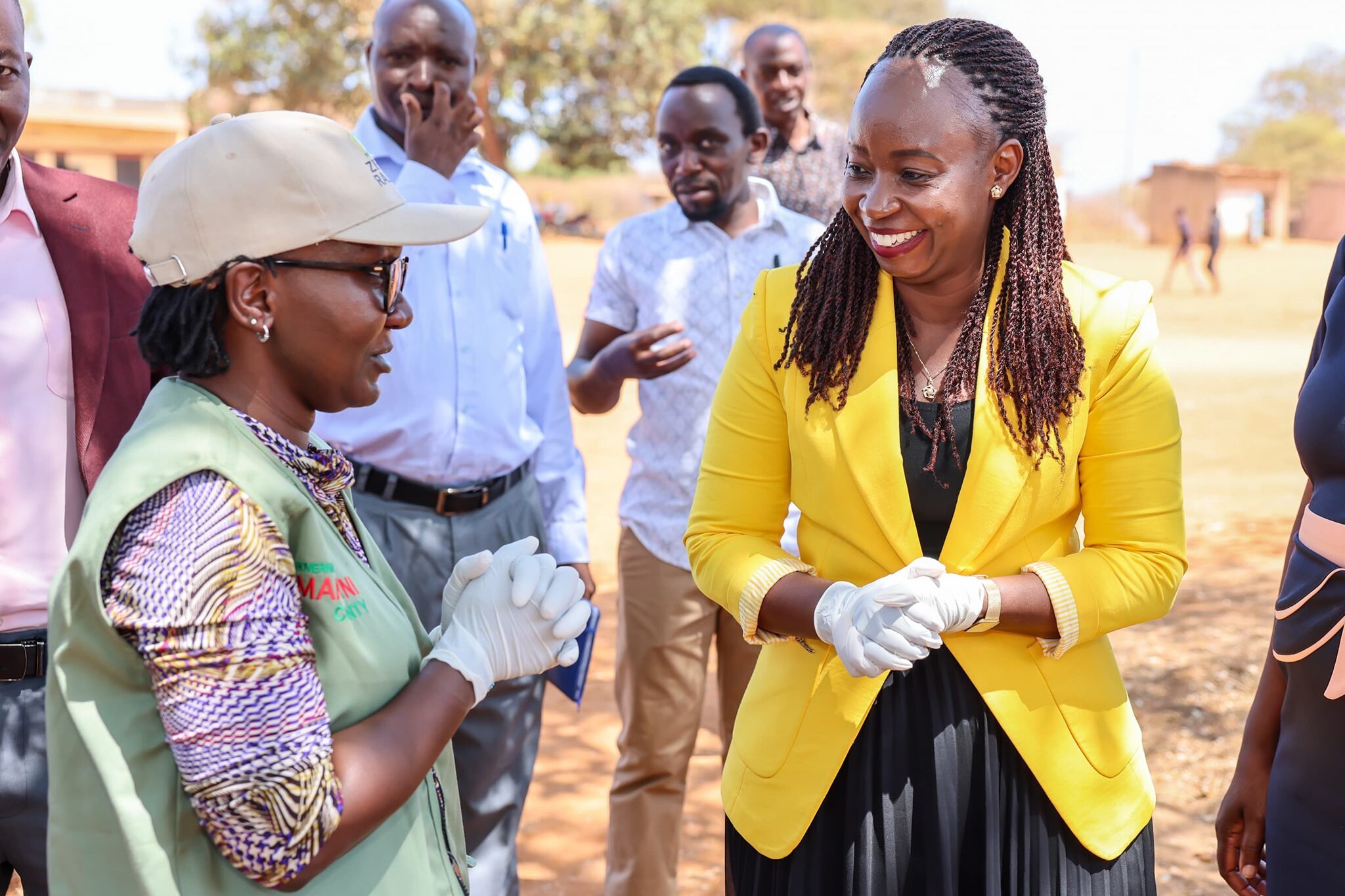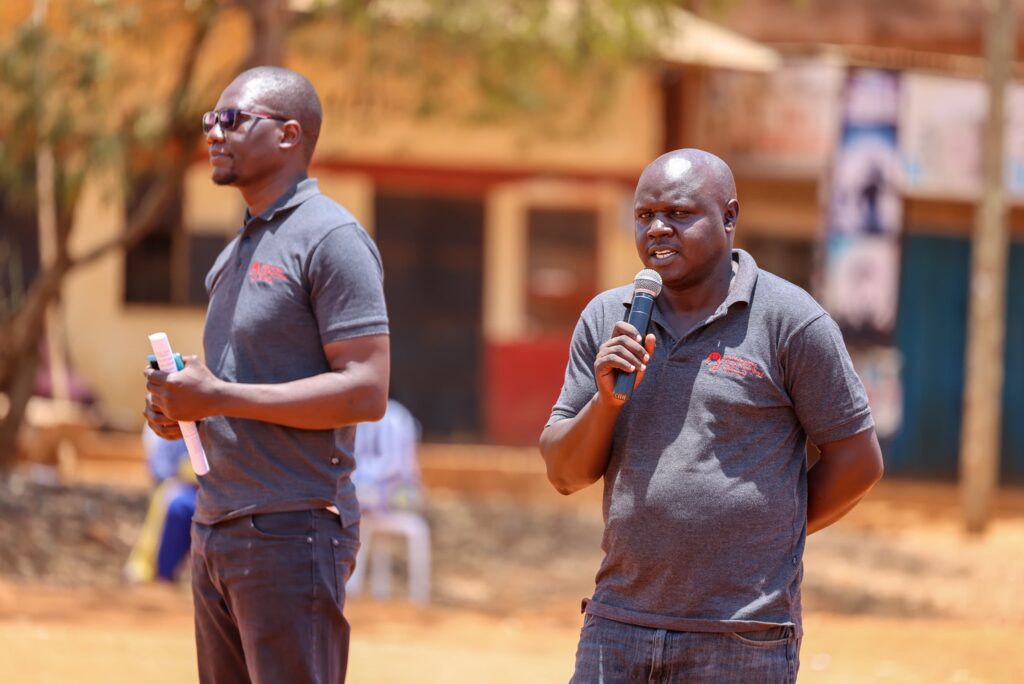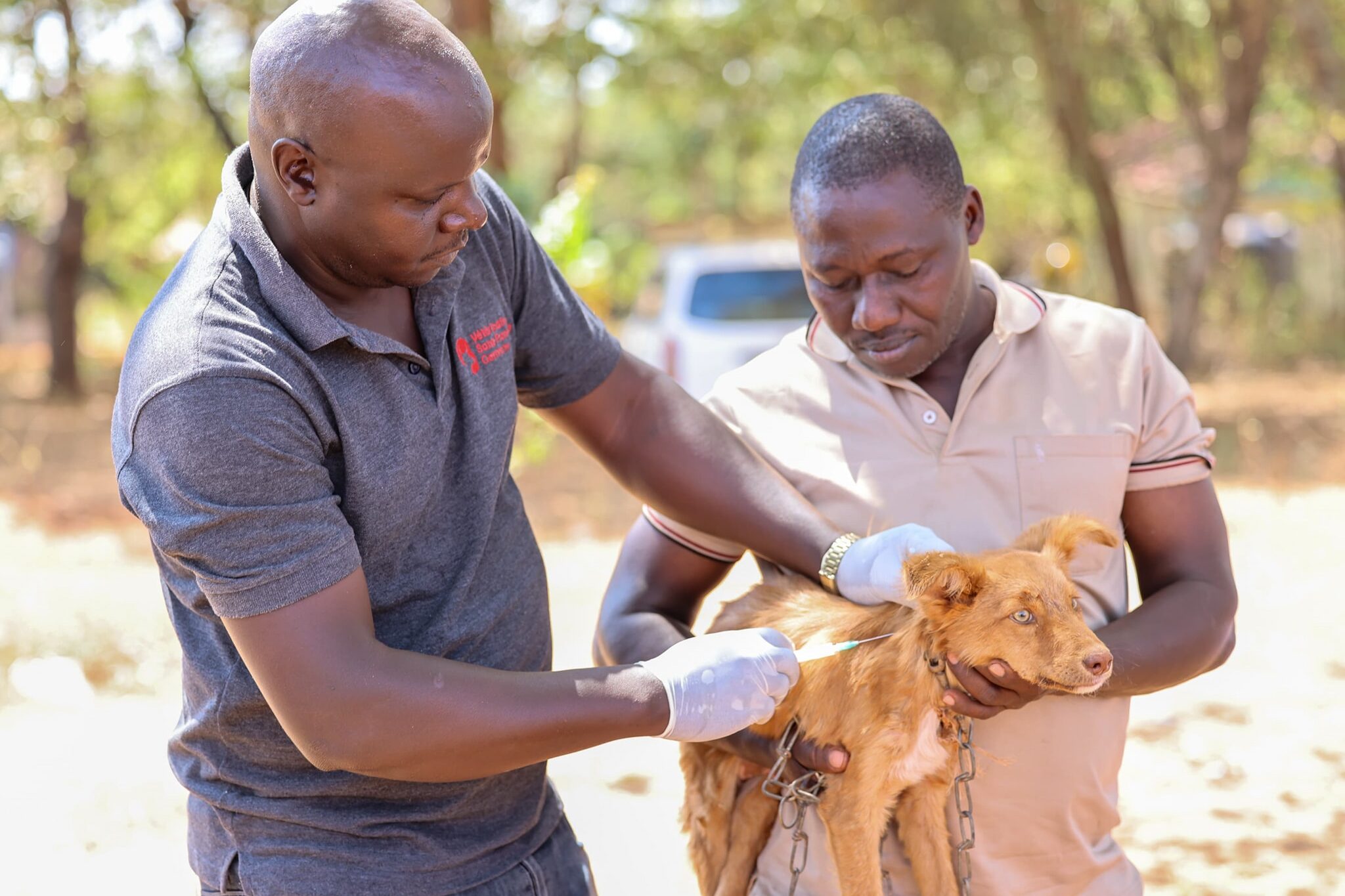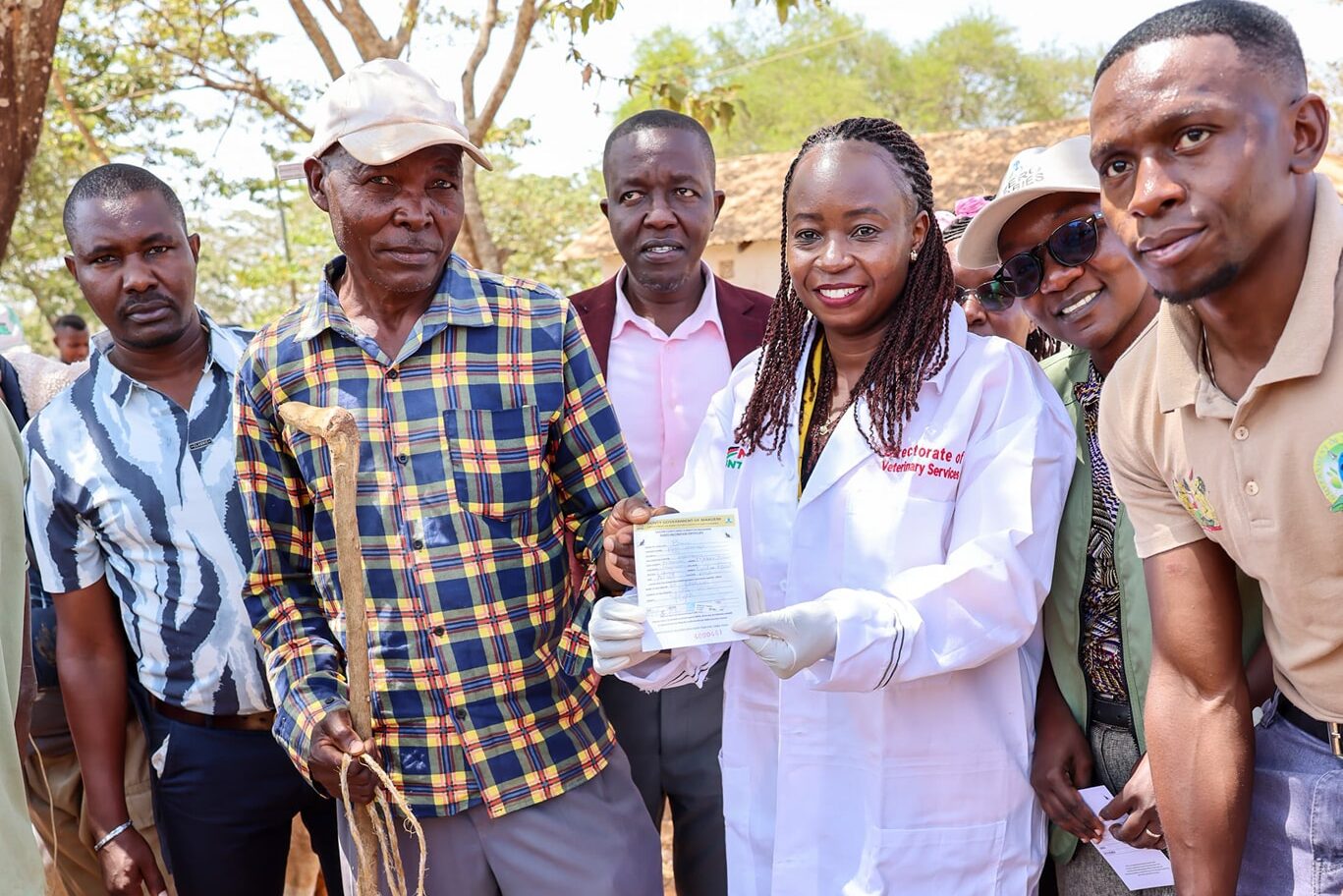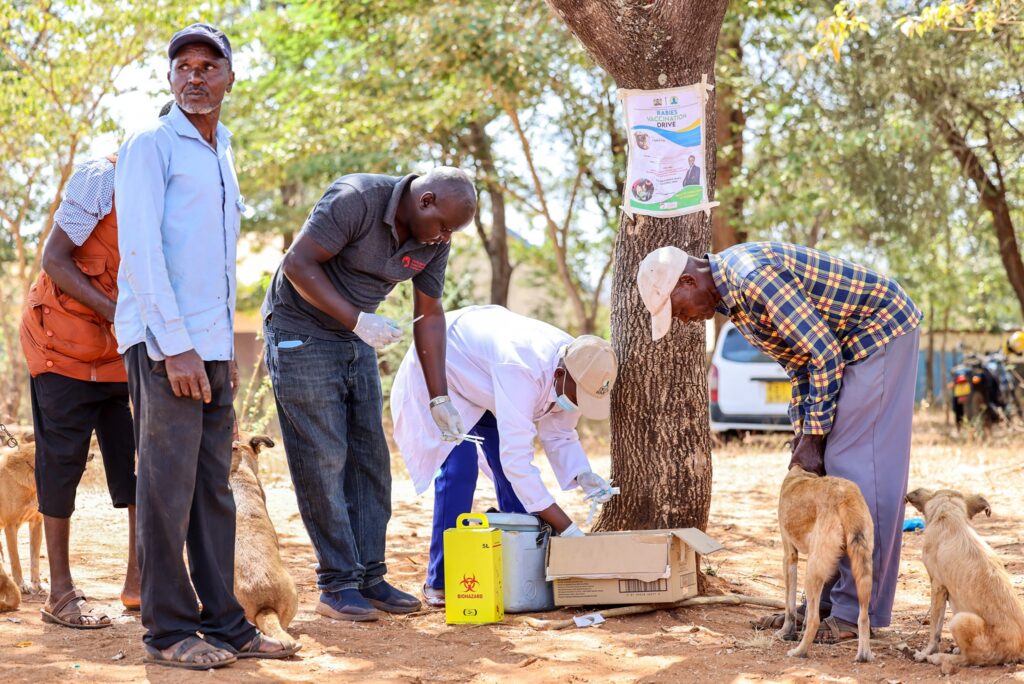FROM STREET POET TO AGRIPRENEUR:
At just 30 years old, Assumpta Mwikali from Mavindini Ward, Makueni County, is rewriting her life story.
Once a street poet and spoken word artist in Nairobi—earning coins from small performances to survive—Assumpta today stands out as a thriving agripreneur whose work is transforming not only her own life but also that of other young people in her community.
Her turning point came when life in the city proved unsustainable, pushing her to return home. Spotted by a Ward Agricultural Officer, she was encouraged to attend a World Food Programme (WFP) training in Naivasha.
That marked the beginning of a new chapter. Soon after, with support from Makueni’s Department of Agriculture, she joined the Agricultural Training Centre (ATC) at Kwa Kathoka to study horticulture production.
Out of this training, she founded Young Farmer Solutions, a youth-led initiative focusing on agroecology, soil health, climate change mitigation and food sovereignty. Her skills caught the attention of Africa Harvest, which contracted her to farm green grams.
The income from that venture enabled her to set up a modern nursery that now produces high-quality seedlings.
Nursery Innovation for a Changing Climate:
Assumpta’s nursery stands out because of its innovative use of soilless media such as vermiculite and cocopeat. This technology produces strong, disease-free seedlings with deep roots that adapt quickly to new environments.
For farmers in arid and semi-arid regions like Makueni, this means seedlings that require less water, grow faster and withstand harsh conditions—boosting food security while helping farmers save on costs.
Through this model, she is not just producing seedlings but also training youths, schools and organizations on climate-smart agriculture.
By demonstrating that agribusiness can be dignified, modern and profitable, she is inspiring a new generation in Mavindini Ward to view farming as a career of choice.
A Community Model of Growth:
Her work goes beyond farming. Assumpta actively participates in Village Savings and Loan Associations (VSLAs), a community-based saving model where members make weekly contributions to a shared fund.
This initiative is empowering rural communities to access capital for small businesses without relying on external loans, reducing economic dependence and fostering self-reliance.
Farmer Service Centres – A Bigger Picture:
Assumpta’s story reflects the power of the Farmer Service Centre (FSC) model, a county initiative that identifies gaps in agribusiness, creates demand, links farmers to markets and offers training across various value chains.
She is one of 30 graduates across Makueni County, each pursuing different agricultural enterprises—from livestock, poultry, apiary to fruit processing—underlining the county’s efforts to create youth-led, sustainable farming enterprises.
During a recent tour of her nursery, Makueni CECM for Agriculture, Liz Muli, praised her efforts and encouraged more young people to take up agribusiness.
Speaking with hope, Assumpta shared: “This farm is more than just my livelihood; it’s a second chance at life. With the support of the county and partners, I’ve been able to turn my passion into a solution for young people in my community. My dream is to see every youth believe that agribusiness is not just farming—it is dignity, innovation, and opportunity.”
To keep her agribusiness running, Assumpta has invested in simple but effective water solutions.
Using a water buzzer, she draws water from a nearby river and stores it in a farm pod system that maintains her nursery and a vibrant pawpaw plantation—showcasing how creativity and smart solutions can turn scarcity into sustainable farming.
Looking Ahead:
Assumpta now dreams of constructing and certifying her nursery to ensure even wider access to quality seedlings and opportunities for young farmers.
From a poet with no home to a farmer with a vision, her journey shows that agriculture is not just a livelihood—it is a lifeline, a tool for innovation and a path to community transformation.
Assumpta Mwikali’s inspiring journey from a street poet to a thriving agripreneur reflects the vison of Governor Mutula Kilonzo Jr. county’s agenda of youth and women empowerment, food security and economic transformation.
